Past Events
December 2025 | |
| Fri 5 Dec 2025 11:00 - 12:00 | Seminar: Centre for Intelligent Sensing seminar by Dr Jongyoo Kim and Dr Jungin Park (Yonsei University) Centre for Multimodal AI Centre for Intelligent Sensing seminar by Dr Jongyoo Kim and Dr Jungin Park (Yonsei University) When: 11am-12pm, Friday 5 December Where: Peter Landin Building 302 (PL 302) Speaker #1: Dr Jongyoo Kim, Assistant Professor @ Yonsei University,... |
| Fri 5 Dec 2025 14:30 - 15:30 | 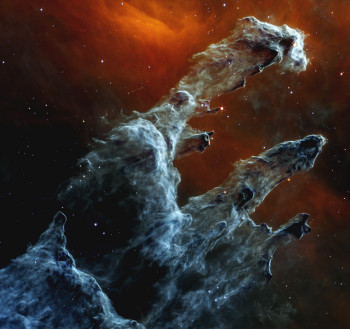 Seminar: Astronomy Unit Seminar - Syksy Räsänen Seminar: Astronomy Unit Seminar - Syksy RäsänenCentre for Fundamental Physics |
| Thu 4 Dec 2025 11:00 - 18:00 | 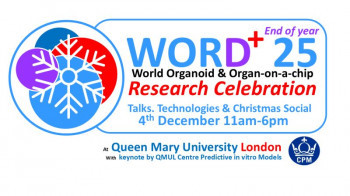 Christmas Research Celebration - Queen Mary & WORD+ World Organoid and Organ-Chip Community Christmas Research Celebration - Queen Mary & WORD+ World Organoid and Organ-Chip CommunityCentre for Bioengineering Join us at QMUL Centre for predictive in vitro models, London, as we celebrate the latest advancements during 2025! Speaker line-up includes: Keynote. Professor Martin Knight, CPM, QMUL. AstraZeneca: Dr Carol de Santis, Clinical Pharmacology & Safety. Cardiff University: Dr Luned Badder, School of Medicine. Cosyne Therapeutics: Dr Julia Kleniuk & Dr Zoe Smith. GSK: Dr Lisa Mohamet, Target Discovery. Imperial College London: Dr Tamas Korcsmaros. ... |
| Thu 4 Dec 2025 13:00 - 14:00 | Seminar: Edon Kelmendi (QMUL) Centre for Complex Systems |
| Thu 4 Dec 2025 13:00 - 14:00 | 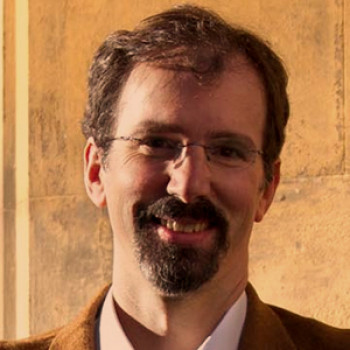 Seminar: Expediting Drug Discovery for Undruggable Targets Using AI Seminar: Expediting Drug Discovery for Undruggable Targets Using AICentre for Molecular Cell Biology Join us for the first SBBS seminar for the Centre for Molecular Cell Biology. Speaker: Prof Michele Vendruscolo, University of Cambridge Host: Prof John Viles Speaker Bio: Michele Vendruscolo is Professor of Biophysics, Director of the Chemistry of Health Laboratory and Co-Director of the Centre for Misfolding Diseases at the Department of Chemistry of the University of Cambridge, where he moved over 20 years ago. His work is aimed at establishing the fundamental principles of... |
| Thu 4 Dec 2025 14:00 - 15:00 | Seminar: Linqi Wang (QMUL): Multivariate AutoRegressive Smooth Liquidity (MARSLiQ) Centre for Probability, Statistics and Data Science We propose MARSLiQ (Multivariate AutoRegressive Smooth Liquidity), a new multivariate model for daily liquidity that combines slowly evolving trends with short-run dynamics to capture both persistent and transitory liquidity movements. In our... |
| Wed 3 Dec 2025 13:00 - 14:00 | Seminar: Felix Fischer (QMUL): I.I.D. Prophet Inequalities from Samples Centre for Probability, Statistics and Data Science In the prophet problem we observe a sequence of values drawn independently from known distributions and stop at one of the values without knowledge of the rest of the sequence and without recourse. Our goal is to maximize, in expectation, the value... |
| Wed 3 Dec 2025 13:30 - 15:00 | 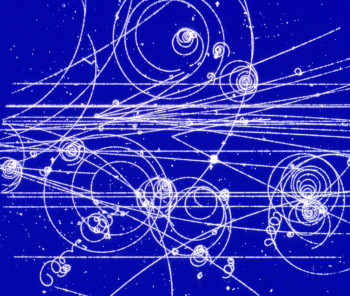 Seminar: SHiP Experiment - Matei Climecu (Ghent) Seminar: SHiP Experiment - Matei Climecu (Ghent)Centre for Fundamental Physics Details TBC 13:30-14:00 - In person refreshments 14:00-15:00 - seminar |
| Wed 3 Dec 2025 14:00 - 15:00 | Seminar: Kim Kreienkamp (TU Berlin): Exceptional points in active non-reciprocal mixtures Centre for Probability, Statistics and Data Science Non-reciprocal couplings significantly impact the collective dynamics of mixtures. A particularly striking consequence of such couplings is the spontaneous emergence of time-dependent phases that break parity-time symmetry. Here, we study a... |
November 2025 | |
| Sun 30 Nov 2025 11:00 - 15:00 | 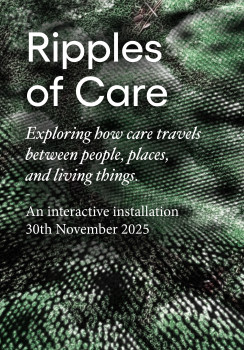 Ripples of Care Ripples of CareCentre for Human-Centred Computing Ripples of Care invites visitors to explore how acts of care for plants and animals can send ripples through a wider ecosystem. This one-day exhibition presents interactive, reflective videos and installations that transform moss terraria with digital media into small ecosystems and invite you to notice how care travels between people, places, and living things. Developed by a team of artists, designers, and researchers from Queen Mary University of London (iGGi), Royal College of Art, and... |
| Fri 28 Nov 2025 14:30 - 15:30 |  Seminar: Astronomy Unit Seminar - Claudia Maraston Seminar: Astronomy Unit Seminar - Claudia MarastonCentre for Fundamental Physics |
| Thu 27 Nov 2025 13:00 - 14:00 | Seminar: Francesco Coghi (U Nottingham): Large deviations in self-interacting jump processes Centre for Complex Systems Self-interacting jump processes are stochastic systems where transition rates depend on the process's own empirical occupation measure, introducing a feedback that breaks Markovianity. In this talk, I will present a large deviation framework for such... |
| Thu 27 Nov 2025 14:00 - 15:00 | 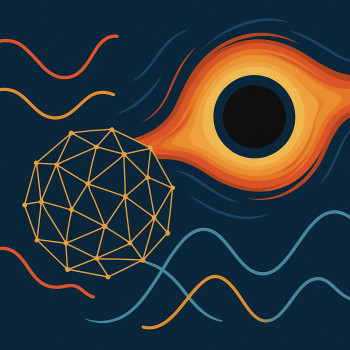 Seminar: Qinglin Yang (Garching, Max Planck Inst.) Seminar: Qinglin Yang (Garching, Max Planck Inst.)Centre for Fundamental Physics |
| Thu 27 Nov 2025 14:00 - 15:00 | Seminar: Kalliopi Mylona (KCL): Algorithmic techniques for finding optimal experimental designs Centre for Probability, Statistics and Data Science Searching for an optimal experimental design is computationally intensive, particularly in high-dimensional settings or in multi-objective cases. In practical applications, it is common to encounter competing design criteria that must be carefully... |
| Wed 26 Nov 2025 11:00 - 12:00 | Seminar: Guest lecture by Professor Inbal Arnon: "Cultural evolution creates language-like structure: from humans to humpback whales and beyond." Centre for Human-Centred Computing Abstract All known languages are made up of statistically coherent sequences - words - whose frequency distribution follows a power law known as a Zipfian distribution. Despite the ubiquity of these features across languages their origins are... |
| Wed 26 Nov 2025 11:00 - 12:00 | 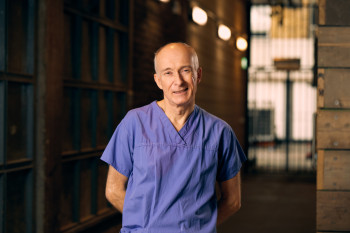 Seminar: Robotics seminar: Soft Robotics, Surgeons and the Pathway to Surgical Application, by Prof Martin Birchall Seminar: Robotics seminar: Soft Robotics, Surgeons and the Pathway to Surgical Application, by Prof Martin BirchallCentre for Advanced Robotics ARQ Robotics seminar Title: Soft Robotics, Surgeons and the Pathway to Surgical Application Speaker: Prof Martin Birchall Abstract: Engineering advances may enable development of implantable artificial muscles. Lessons from previous implant experience must be applied to ensure best outcomes, maximum uptake and reduction of avoidable risk. Affordable solutions realistically able to recoup development costs are key, but could generate conflict between scrupulous selection of patients and... |
| Wed 26 Nov 2025 13:30 - 15:00 |  Seminar: LZ Experiment - Amy Cottle (UCL) Seminar: LZ Experiment - Amy Cottle (UCL)Centre for Fundamental Physics Details TBC 13:30-14:00 - In person refreshments 14:00-15:00 - seminar |
| Wed 26 Nov 2025 15:00 - 16:00 | 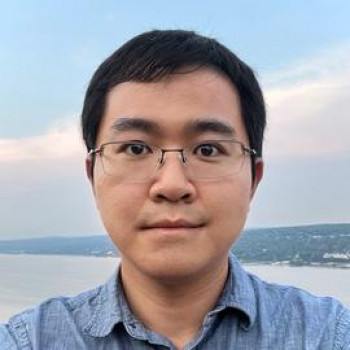 Seminar: How to Choose the Best Model from a Large Language Model Zoo? Seminar: How to Choose the Best Model from a Large Language Model Zoo?Centre for Networks, Communications and Systems Registration Link: https://forms.cloud.microsoft/e/qyVTHuH9X6 Please express your interest by 18/11/2025. Title: How to Choose the Best Model from a Large Language Model Zoo? Speaker: Prof. Shiqiang Wang Abstract: Open-weight large language model (LLM) zoos provide access to numerous high-quality models, but selecting the appropriate model for specific tasks remains challenging and requires technical expertise. Most users simply want factually correct, safe, and satisfying responses... |
| Wed 26 Nov 2025 15:00 - 16:00 | Seminar: CCMP Seminar - Oliver Trayler and Joseph Owen - Quantum Spin Liquids and Single-Electron Transistors Centre for Experimental and Applied Physics There will be two talks from CCMP PhD students - Oliver Trayler and Joseph Owen. Abstracts below: Oliver Trayler Observing entanglement in isolated spin states for aid in observation of QSLs Quantum Spin Liquids (QSLs) are a state of matter with... |
| Tue 25 Nov 2025 11:00 - 12:30 | 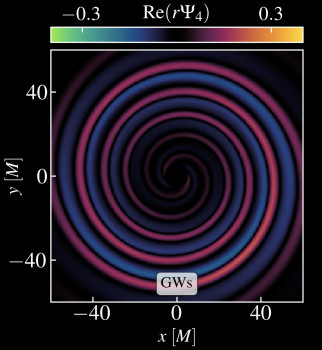 GAnG Special Seminar: Marica Minucci GAnG Special Seminar: Marica MinucciCentre for Geometry, Analysis and Gravitation Title: Conserved Currents and Bilinear Forms for Quasinormal Modes in the Hyperboloidal Formalism Abstract: The late-time gravitational-wave signal from a binary black hole merger is dominated by quasinormal ringing, a spectrum of damped oscillations whose complex frequencies, in linear perturbation theory, depend only on the remnant's mass and spin. These modes encode a unique spectral fingerprint of the final black hole, and current observations already hint at the presence of overtones. ... |
| Tue 25 Nov 2025 14:00 - 15:30 | 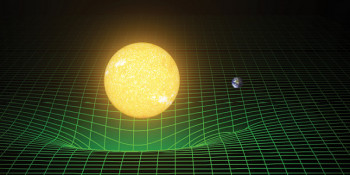 GAnG Seminar: Raphaela Wutte, Hyperbolic Mass in 2+1 Dimensions GAnG Seminar: Raphaela Wutte, Hyperbolic Mass in 2+1 DimensionsCentre for Geometry, Analysis and Gravitation Title: Hyperbolic Mass in 2+1 Dimensions Abstract: Solutions to general relativity with a negative cosmological constant have received significant attention due to the conjectured AdS/CFT correspondence, a particularly well-understood example of which is exhibited in 2+1 dimensions. I will review known vacuum solutions to general relativity with a negative cosmological constant in 2+1 dimensions and discuss the difficulties in defining mass, which are resolved via minimisation using a... |
| Mon 24 Nov 2025 12:00 - 13:00 | 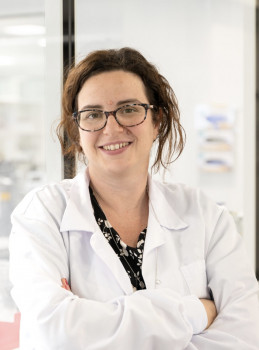 SEMS Seminars: Dr Daniela Marino, CEO of CUTISS AG SEMS Seminars: Dr Daniela Marino, CEO of CUTISS AGCentre for Bioengineering Seminar Title: A Tissue Therapy Revolution: Engineering Personalised Skin for Regenerative Medicine Abstract: CUTISS AG is leading a transformation in skin surgery through the development of personalised, bioengineered human skin designed to replace traditional autologous grafts. Its flagship innovation, denovoSkin™, is a first-in-class, bi-layered (dermis and epidermis) human skin graft cultivated from a small patient biopsy and matured in a scalable, automated, and fully closed... |
| Fri 21 Nov 2025 14:30 - 15:30 |  Seminar: Astronomy Unit Seminar - John Ilee Seminar: Astronomy Unit Seminar - John IleeCentre for Fundamental Physics |
| Fri 21 Nov 2025 15:00 - 17:00 | 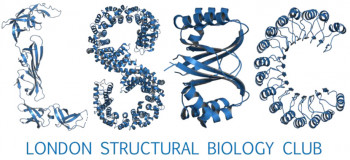 London Structural Biology Club
Autumn Meeting London Structural Biology Club
Autumn MeetingCentre for Molecular Cell Biology Join us at the LSBC Autum meeting. Programme • Shannon Mostyn, Imperial College London (Bubeck Lab): "Mechanisms of toxin mediated bacterial competition in the gut" • Tim Knot, King's College London: "Ion binding modulates DEAD-box IDR phase transitions" • Barry Liu, Francis Crick Institute (Rosenthal Lab): "New principles for biological lattice assembly revealed by cryo-ET of influenza virus" • Sasi Conte, King's College London: "Interplay of order and disorder in RNA... |
| Thu 20 Nov 2025 11:00 - 12:00 | Seminar: C4DM Seminar: Eloi Moliner: Diffusion Models for Audio Effects: From Blind Estimation to Automatic Mixing Centre for Multimodal AI C4DM Seminar: Eloi Moliner: Diffusion Models for Audio Effects: From Blind Estimation to Automatic Mixing QMUL, School of Electronic Engineering and Computer Science Centre for Digital Music Seminar Series Seminar by: Eloi Moliner Date/time... |
| Thu 20 Nov 2025 14:00 - 15:00 |  Seminar: Matthew Walters (Heriot-Watt U.) Seminar: Matthew Walters (Heriot-Watt U.)Centre for Fundamental Physics |
| Thu 20 Nov 2025 14:00 - 15:00 | Miguel de Carvalho (Edinburgh): Neural Statistical Modeling of Cascading Extremes Centre for Probability, Statistics and Data Science In the talk I will address the growing concern of cascading extreme events, such as an extreme earthquake followed by a tsunami, by presenting a novel risk assessment method for these domino effects. The proposed approach develops an extreme value... |
| Wed 19 Nov 2025 11:00 - 12:00 | 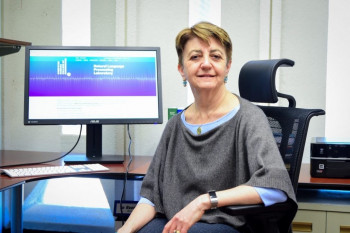 Guest Lecture by Prof. Barbara di Eugenio: "Engaging Patients in Healthcare: Conversational Assistants in the era of Large Language Models" Guest Lecture by Prof. Barbara di Eugenio: "Engaging Patients in Healthcare: Conversational Assistants in the era of Large Language Models" Centre for Human-Centred Computing Effective and compassionate communication with patients is becoming central to healthcare, and Natural Language Processing can play a central role in this endeavor. I will discuss the results of and lessons learned from two ongoing projects in this space, but also address the problem of bias in our computational models, especially LLMs. The VIRTUAL-COACH project models health coaching interactions via text exchanges that encourage patients to adopt specific and realistic physical activity goals;... |
| Wed 19 Nov 2025 11:00 - 12:00 | 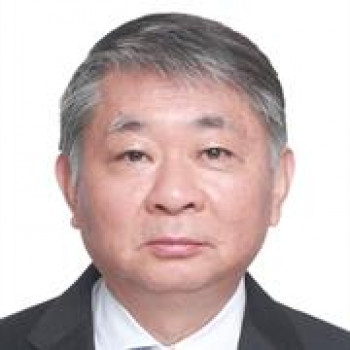 Seminar: Uncertainty Awareness in Wireless Sensing and Communications Seminar: Uncertainty Awareness in Wireless Sensing and CommunicationsCentre for Networks, Communications and Systems Speaker: Professor Geoffrey Li Title: Uncertainty Awareness in Wireless Sensing and Communications Abstract: Uncertainties arise when our knowledge deviates from the underlying truth. In wireless communications and sensing, typical examples include channel estimation errors, array calibration imperfections, nonstationary signal characteristics, time-varying network topologies, to name a few. If not properly addressed, the performance of wireless systems may significantly degrade. In this... |
| Wed 19 Nov 2025 13:00 - 14:00 | Seminar: Mohammed Osman (QMUL): Bulk universality for sparse complex matrices Centre for Probability, Statistics and Data Science We consider large random matrices with independent complex entries whose moments decay slowly in the dimension. In particular, this model contains sparse matrices whose entries are the product of a Bernoulli random variable and an independent complex... |
| Wed 19 Nov 2025 13:30 - 15:00 |  Seminar: AI Seminar - Dr Tom Whitehead (Intelligens) Seminar: AI Seminar - Dr Tom Whitehead (Intelligens)Centre for Fundamental Physics Details TBC 13:30-14:00 - In person refreshments 14:00-15:00 - seminar |
| Wed 19 Nov 2025 15:00 - 16:00 | Seminar: From the Cosmos to Antiferromagnets: Engineering Topological
Solitons for Spintronics Centre for Experimental and Applied Physics The next CCMP seminar will be on Wednesday 19th at 15:00-16:00 in GO Jones 610. Dr Hariom Jani will be visiting us from the University of Oxford to discuss the topological properties of antiferromagnetic solitons. Abstract: Topological solitons... |
| Tue 18 Nov 2025 14:00 - 15:30 |  GAnG Seminar: Bernardo Araneda from University of Edinburgh GAnG Seminar: Bernardo Araneda from University of EdinburghCentre for Geometry, Analysis and Gravitation Title: Gravitational instantons beyond self-duality Abstract: Gravitational instantons are four-dimensional, complete, regular and smooth Riemannian manifolds satisfying the Euclidean Einstein equations, which arise naturally in some approaches to quantum gravity. There is a renewed interest in these geometries, thanks to the recent discovery of counterexamples to some famous conjectures, such as Euclidean black hole uniqueness and related problems in Riemannian geometry. After a review... |
| Mon 17 Nov 2025 15:00 - 16:30 | 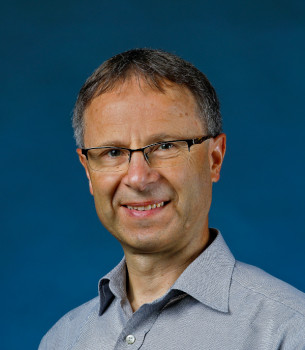 Seminar: ARQ Research Seminar: Towards Autonomy in Robot-Assisted Surgery, by Prof Miloš Žefran Seminar: ARQ Research Seminar: Towards Autonomy in Robot-Assisted Surgery, by Prof Miloš Žefran
Centre for Advanced Robotics ARQ Research Seminar Speaker: Prof Miloš Žefran Department of Electrical and Computer Engineering, University of Illinois Chicago Title: Towards Autonomy in Robot-Assisted Surgery Robot-assisted surgery (RAS) provides significant benefits over traditional open and laparoscopic procedures. It also offers the possibility of automating surgical interventions, particularly in light of recent advances in visual computing. My talk will describe our research program towards automating... |
| Fri 14 Nov 2025 13:00 - 14:00 | 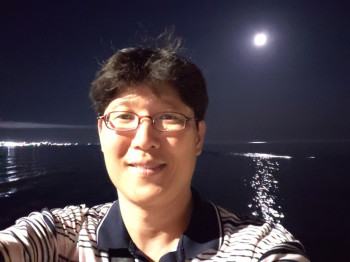 Seminar: Systems and synthetic biology: constructing smart and programmable microbes and microbiota to address global problems. Seminar: Systems and synthetic biology: constructing smart and programmable microbes and microbiota to address global problems.Centre for Molecular Cell Biology The Centre for Molecular Cell Biology will be hosting Prof Tae Seok Moon from J. Craig Venter Institute (https://www.jcvi.org/about/tae-seok-moon), who will give a talk on "Systems and synthetic biology: constructing smart and programmable microbes and microbiota to address global problems". Abstract The past decade has witnessed the tremendous power of systems and synthetic biology in the creation of genetic parts, devices, and systems, which helps understand complex biological systems. ... |
| Thu 13 Nov 2025 13:00 - 14:00 | Seminar: Lorenzo Giambagli (FU Berlin): Emergent global dynamics of topological signals Centre for Complex Systems This talk explores the emerging field of topological signals, dynamical variables defined on higher-order networks such as simplicial or cell complexes. These are functions defined on simplicial complexes that generalize the idea of node-based... |
| Thu 13 Nov 2025 14:00 - 15:00 |  Seminar: Fedor Levkovich-Maslyuk (London, City U.) Seminar: Fedor Levkovich-Maslyuk (London, City U.)Centre for Fundamental Physics Yangian symmetry, GKZ equations and integrable Feynman graphs We extend the powerful property of Yangian invariance to a new large class of conformally invariant multi-loop Feynman integrals. This leads to new highly constraining differential equations for them, making integrability visible at the level of individual Feynman graphs. Our results apply to planar Feynman diagrams in any spacetime dimension dual to an arbitrary network of intersecting straight lines on a plane (Baxter lattice),... |
| Thu 13 Nov 2025 14:00 - 15:00 | Seminar: Daniele Bianchi (QMUL): Scalable Bayesian inference for dynamic variable selection in high-dimensional regressions Centre for Probability, Statistics and Data Science We develop a variational Bayes approach for dynamic variable selection in high-dimensional regression models with time-varying parameters and predictors that exhibit a predefined group structure. Through comprehensive simulation studies, we... |
| Wed 12 Nov 2025 11:00 - 12:00 | Seminar: Joe Stacey: How to improve the robustness and interpretability of Natural Language Inference models Centre for Human-Centred Computing Abstract Joe's talk will have two parts: 1) discussing how to improve the robustness of fine-tuned Natural Language Inference (NLI) models, and 2) introducing a method for creating inherently interpretable NLI models. In the first part, Joe... |
| Wed 12 Nov 2025 13:00 - 14:00 | Seminar: Alexander Watson (UCL): The Wiener-Hopf factorisation of Lévy processes Centre for Probability, Statistics and Data Science |
| Wed 12 Nov 2025 13:30 - 15:00 |  Seminar: LEGEND eperiment - Dr Will Quinn (UCL) Seminar: LEGEND eperiment - Dr Will Quinn (UCL)Centre for Fundamental Physics 13:30-14:00 - In person refreshments 14:00-15:00 - seminar |
| Wed 12 Nov 2025 14:00 - 15:00 | Seminar: Benjamin Kellenberger (Yale University): Deep learning for species distribution Modelling: A tale of simplicity, errands, and breakdowns Centre for Probability, Statistics and Data Science Ever-increasing data sizes and advancements in modelling have greatly transformed environmental sciences in recent years. Ecology is no exception to this trend, as large machine, mostly deep learning models, have become ubiquitous in ecologically... |
| Wed 12 Nov 2025 15:00 - 16:00 | Seminar: CCMP Seminar - Prof Fang Xie: Plasmonic Materials for Healthcare and Solar Energy Harvesting Applications Centre for Experimental and Applied Physics Prof Fang Xie will be visiting us from Imperial College London, please find the talk title and abstract below. Plasmonic Materials for Healthcare and Solar Energy Harvesting Applications Novel plasmonic nanostructures developed in our group... |
| Tue 11 Nov 2025 14:00 - 15:30 |  GAnG Seminar: Alan Rios Fukelman GAnG Seminar: Alan Rios FukelmanCentre for Geometry, Analysis and Gravitation Title: de Sitter Universes Abstract: In this talk I will discuss features of Quantum Field Theories in a fixed de Sitter background. I will present an exactly solvable model and show how to obtain all loops correlation functions of local operators. I will then discuss the existence of charged vacuum states in the theory and its relation to spontaneous symmetry breaking in de Sitter spacetimes. |
| Fri 7 Nov 2025 13:00 - 15:00 | 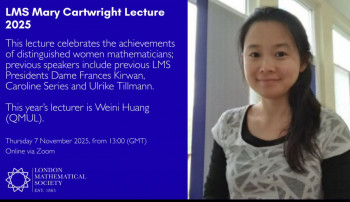 LMS Mary Cartwright Lecture 2025 LMS Mary Cartwright Lecture 2025Faculty of Science and Engineering The London Mathematical Society (LMS) is delighted to announce that the 2025 Mary Cartwright Lecture will be given by Weini Huang (QMUL). The Mary Cartwright Lecture is an annual lecture organised by the Committee for Women and Diversity in Mathematics and forms part of the annual programme of Society Meetings. The event was established by the LMS in 2000 and is named after Dame Mary Lucy Cartwright, the first female mathematician FRS, the first woman to receive the Sylvester Medal, the first... |
| Fri 7 Nov 2025 14:30 - 15:30 |  Seminar: Astronomy Unit Seminar - David Clements Seminar: Astronomy Unit Seminar - David ClementsCentre for Fundamental Physics |
| Fri 7 Nov 2025 14:30 - 15:30 | 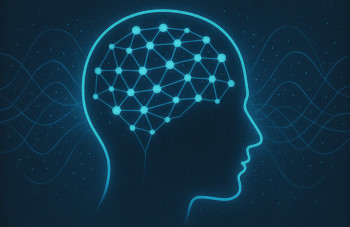 ML Seminar: AdS-GNN: A conformally equivariant neural network - Nabil Iqbal ML Seminar: AdS-GNN: A conformally equivariant neural network - Nabil IqbalCentre for Fundamental Physics One important organizing principle for building such neural networks is that of symmetry, i.e. the idea that the symmetries of the problem should be encoded in the architecture of the network. I will provide an introduction to the resulting field of "geometric deep learning". I will then discuss our construction of a neural network that transforms nicely under the conformal group, i.e. the set of transformations that preserve angles. I will describe how our construction leverages some of the... |
| Fri 7 Nov 2025 16:30 - 17:30 | 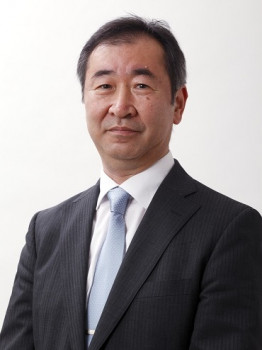 Sir Peter Mansfield Lecture: Professor Taakaki Kajita, Nobel Prize in Physics recipient (2015) and spokesperson of the KAGRA experiment Sir Peter Mansfield Lecture: Professor Taakaki Kajita, Nobel Prize in Physics recipient (2015) and spokesperson of the KAGRA experimentCentre for Fundamental Physics Takaaki Kajita is a Distinguished University Professor and a Special University Professor of The University of Tokyo. He is affiliated with the Institute for Cosmic Ray Research (ICRR) of the University of Tokyo. Professor Kajita received his PhD from the University of Tokyo School of Science in 1986, and has been researching with Kamiokande and Super-Kamiokande neutrino detectors at the Kamioka Observatory of ICRR in central Japan. In 1998, at the Neutrino International Conference held in... |
| Thu 6 Nov 2025 10:00 - 11:00 | 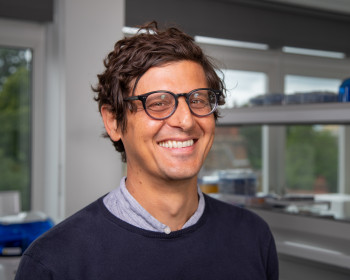 ZEISS Webinar:
Single Cell Airway Biology at the Nanoscale ZEISS Webinar:
Single Cell Airway Biology at the NanoscaleCentre for Molecular Cell Biology Join our webinar to explore how integrating multimodal imaging is enhancing understanding of airway epithelial structure and function. Speakers: Dr Vito Mennella (Centre for Molecular Cell Biology, QMUL) Dr Debora Olivier (ZEISS) Insights on: Super-resolution imaging in motile cilia Fluorescence microscopy contribution to rare diseases diagnosis Airway epithelium multimodal imaging approaches AI-driven analysis There will also be a ZEISS expert on hand to... |
| Thu 6 Nov 2025 13:00 - 14:00 | Seminar: Jin Yan (Weierstrass Institute, Berlin): Spatiotemporal dynamics and critical transitions in coupled dissipative systems Centre for Complex Systems Coupled nonlinear systems with dissipation and external driving — whether periodic or non-periodic — exhibit remarkably rich spatiotemporal dynamics, ranging from synchronisation and pattern formation to chimeras (partial synchronisation) and... |
| Thu 6 Nov 2025 14:00 - 15:00 |  Seminar: Han Yan (the University of Tokyo) Seminar: Han Yan (the University of Tokyo)Centre for Fundamental Physics Hyperbolic Fracton Models: Bridging AdS/CFT and Self-Correcting Code Fracton models—many-body systems whose excitations can only appear in restricted multipole configurations—have emerged as a fertile ground for exploring connections between quantum information, topological phases of matter, and exotic dynamics. In this talk, I will introduce a class of classical fracton models defined on hyperbolic lattices, i.e., lattices embedded in spaces of constant negative curvature. These models... |
| Thu 6 Nov 2025 14:00 - 15:00 | Seminar: Rebecca Killick (Lancaster): Global warming and Statistics: A statisticians view of the surge in warming debate Centre for Probability, Statistics and Data Science Global warming is always a hot topic and whatever side of the fence you sit on, you cannot deny the data that the climate is changing - regardless of attributing a cause to that. These changes have huge impacts on individual lives all over the world... |
| Wed 5 Nov 2025 13:30 - 15:00 |  Seminar: The CyberSecurity Landscape of 2025 - Maria Souvalioti Seminar: The CyberSecurity Landscape of 2025 - Maria SouvaliotiCentre for Fundamental Physics Remember, remember the 5th of November - The CyberSecurity Landscape of 2025 13:30-14:00 - In person refreshments 14:00-15:00 - seminar |
| Wed 5 Nov 2025 15:00 - 16:00 | Seminar: CMAI seminar - Masataka Goto - Advancing Music Experience Through Music Information Research Centre for Multimodal AI We are pleased to announce a CMAI seminar to be held at 3-4pm on Wednesday 5th Nov, on Advancing Music Experience Through Music Information Research, to be given by Dr. Masataka Goto (AIST, Japan). The seminar will take place in room G2, ground... |
| Tue 4 Nov 2025 10:00 - 16:00 |  AI Collaborative Workshop AI Collaborative WorkshopCentre for Probability, Statistics and Data Science We aim to bring together experts in AI and those using (or hoping to use) AI methods in their research, from all the five Schools of the Faculty of Science and Engineering. We envisage that the workshop will strengthen the ties between Schools, build a research community around the development and use of AI and develop teams and ideas well ahead of funding calls. Participation by registration: Registration is now closed. Organisers: Marcella Bona, Thomas Roelleke, Kostas Papafitsoros,... |
| Tue 4 Nov 2025 13:00 - 14:00 | 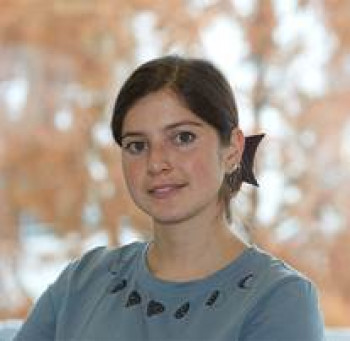 Seminar: CMCB seminar:
Crafting robust patterns in developing tissues under mechanical stress Seminar: CMCB seminar:
Crafting robust patterns in developing tissues under mechanical stressCentre for Molecular Cell Biology Speaker: Dr Giulia Paci Affiliation: MRC Laboratory of Molecular Biology Abstract: Animal tissues develop into functional 3D structures while experiencing constantly changing mechanical forces. How do they establish and maintain robust developmental patterns under such conditions? In this talk, I will present a dual approach to address this question, combining high-resolution 3D imaging and mechanical perturbations of dissected tissues with a novel high-throughput, organism-level assay in... |
| Tue 4 Nov 2025 14:00 - 15:30 |  GAnG Seminar: Antonio Antunes GAnG Seminar: Antonio AntunesCentre for Geometry, Analysis and Gravitation Abstract tbc |
| Mon 3 Nov 2025 14:00 - 15:00 |  Seminar: Julio Parra-Martinez (IHES) Seminar: Julio Parra-Martinez (IHES)Centre for Fundamental Physics Black holes, naturalness and the renormalization group In this talk I will explain how certain aspects of black hole physics can be understood using ideas from effective field theory. Many of the familiar notions from particle physics will play a role, including the renormalization group, universality and naturalness. In particular, I will explain why black holes naively seem like fine-tuned systems, but they are ultimately not. I will also explain how their effective description reveals a... |
October 2025 | |
| Fri 31 Oct 2025 14:30 - 15:30 |  Seminar: Astronomy Unit Seminar - Imogen Gingell - Magnetic Reconnection in the Transition Region of Collisionless Shockwaves Seminar: Astronomy Unit Seminar - Imogen Gingell - Magnetic Reconnection in the Transition Region of Collisionless ShockwavesCentre for Fundamental Physics |
| Thu 30 Oct 2025 09:30 - 00:00 | 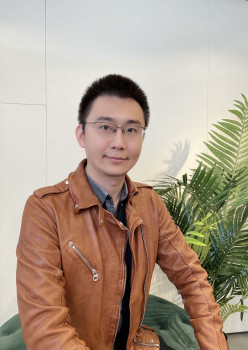 Seminar: Pinching-Antenna Systems (PASS): From Wireless to Near-Wired Communications Seminar: Pinching-Antenna Systems (PASS): From Wireless to Near-Wired CommunicationsCentre for Networks, Communications and Systems Title: Pinching-Antenna Systems (PASS): From Wireless to Near-Wired Communications Abstract: The Pinching-Antenna System (PASS) represents a revolutionary advancement in flexible antenna technology, which enhances wireless communication by establishing strong line-of-sight connectivity, minimizing free-space path loss, and enabling dynamic reconfiguration of antenna arrays. This talk will introduce the basic principles of PASS based on a prototype and explore how PASS transforms communication... |
| Thu 30 Oct 2025 13:00 - 14:00 | Seminar: Alessandro Lonardi (QMUL): Message-Passing on Hypergraphs: Detectability, Phase Transitions and Higher-Order Information Centre for Complex Systems Community detection is a long-standing problem in the study of complex systems. While the detectability limits of communities in networks are well understood, much less is known for hypergraphs. In this talk, I will present: (i) a message-passing... |
| Thu 30 Oct 2025 14:00 - 15:00 |  Seminar: Andrea Conti (Oviedo U.) Seminar: Andrea Conti (Oviedo U.)Centre for Fundamental Physics Codimension-2 Super-(Conformal) Monodromy Defects Recently, there has been an increasing interest in the study of defects in quantum field theories, where holography has become a fruitful framework that enables the study of different aspects of super-(conformal) gauge theories. In this talk, I will discuss supergravity solutions that are dual to super conformal monodromy defects. These solutions are obtained using gauged supergravities in D=4,5,6 and 7 dimensions. I will present a... |
| Thu 30 Oct 2025 14:00 - 15:00 | Seminar: Sebastian Kühnert (Bochum, Germany): Pivotal inference for linear predictions in stationary processes Centre for Probability, Statistics and Data Science In this paper we develop pivotal inference for the final (FPE) and relative final prediction error (RFPE) of linear forecasts in stationary processes. Our approach is based on a novel self-normalizing technique and avoids the estimation of the... |
| Thu 30 Oct 2025 16:00 - 17:00 |  GAnG Bonus Seminar - Lorenzo Sarnataro GAnG Bonus Seminar - Lorenzo SarnataroCentre for Geometry, Analysis and Gravitation Title: The Allen—Cahn equation and free boundary minimal surfaces Abstract: In recent years, the combined work of Guaraco, Hutchinson, Tonegawa, and Wickramasekera has established a min-max construction of minimal hypersurfaces in closed Riemannian manifolds, based on the analysis of singular limits of sequences of solutions of the Allen—Cahn equation, a semi-linear elliptic equation arising in the theory of phase transitions. In this talk, I will describe some recent boundary regularity... |
| Thu 30 Oct 2025 17:00 - 19:30 | 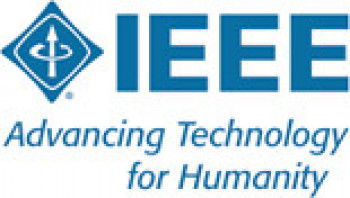 IEEE UK and Ireland Section Panel on Digital Twin. IEEE UK and Ireland Section Panel on Digital Twin.Centre for Networks, Communications and Systems IEEE UK and Ireland Section is organising an in-person public event in London, 30th October 2025. Queen Mary University of London will host an IEEE panel section discussing the application of Digital Twins in different domains. Please complete registration by 17th October via https://forms.gle/h2FhBpnRXDc4hgG96 Abstract: Digital Twins are dynamic data-driven models that replicate physical entities or processes. These are essentially digital models that mirrors the real-world... |
| Wed 29 Oct 2025 14:00 - 15:00 | Seminar: Olivia Vanessa Auster (QMUL) : Limit Theorems for Non-Hermitian Ensembles Centre for Probability, Statistics and Data Science The distributions of the extreme eigenvalue moduli are investigated for the complex Ginibre ensemble and its generalisation, the complex induced Ginibre ensemble, in the limit of very large dimensions of random matrices. The left and right tail... |
| Tue 28 Oct 2025 14:00 - 15:30 |  GAnG Seminar: Eleanor Hamilton GAnG Seminar: Eleanor HamiltonCentre for Geometry, Analysis and Gravitation Title: Encapsulating precession in gravitational wave signal models. Abstract: The gravitational wave signal from precessing systems (those where the spins of the black holes are misaligned with the orbital angular momentum of the binary) is complicated by oscillations in the amplitude and phase, making such systems difficult to understand and to model. This is further compounded by a scarcity of highly precessing waveforms available in public catalogues, required for studying the merger... |
| Tue 28 Oct 2025 16:00 - 18:00 |  SBBS Networking Night 2025 SBBS Networking Night 2025Centre for Molecular Cell Biology Careers and Enterprise's most popular annual event for SBBS students! This is for those interested in the wide field of Biological and Behavioural Sciences who wish to explore their industry options. Hear from QMUL graduates and professionals working in a range of exciting job roles. Learn what their day-to-day involves, what it takes to succeed, and ask any questions you like! Confirmed so far: National Institute for Health and Care Research Novartis Royal Society... |
| Fri 24 Oct 2025 14:00 - 15:00 |  Seminar: Valya Khoze (IPPP Durham University) Seminar: Valya Khoze (IPPP Durham University)Centre for Fundamental Physics Charge Quantisation, Monopoles and Instantons in the Standard Model |
| Fri 24 Oct 2025 14:30 - 15:30 |  Seminar: Astronomy Unit Seminar - Ignas Juodžbalis Seminar: Astronomy Unit Seminar - Ignas JuodžbalisCentre for Fundamental Physics |
| Fri 24 Oct 2025 15:30 - 16:30 |  ML Seminar: Rediscovering analytic structures in amplitudes with Symbolic AI - Nathan Moynihan ML Seminar: Rediscovering analytic structures in amplitudes with Symbolic AI - Nathan MoynihanCentre for Fundamental Physics Machine learning excels at spotting patterns in complex data. In this talk, I will describe how symbolic regression, together with standard ML feature selection methods, rediscovers several well-known analytic results in scattering amplitudes, including the Parke-Taylor, Kleiss-Kuijf, Bern-Carrasco-Johansson, and Kawai-Lewellen-Tye relations, from numerical data and minimal physical priors. This offers an interesting data-driven route to understanding the connection between gauge theories and... |
| Thu 23 Oct 2025 14:00 - 15:00 | Seminar: Ka Man (Ambrose) Yim (University of Cardiff): An Empirical Study of Dimension Estimation Methods Centre for Probability, Statistics and Data Science In this talk, we present findings from an empirical study of popular dimension estimators. The first half of the talk will give an overview of common mathematical approaches in dimensions estimation (including topological data analysis based... |
| Wed 22 Oct 2025 10:30 - 12:00 |  Seminar: Gravitational Wave Initiative meeting Seminar: Gravitational Wave Initiative meetingCentre for Geometry, Analysis and Gravitation This is the first GWI meeting of term: we will share news from the summer and Michalis Agathos will present an overview of the (exciting!) new LVK results from observing run O4a. |
| Wed 22 Oct 2025 10:30 - 12:00 | 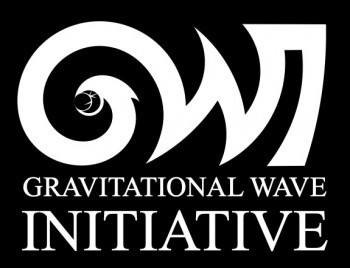 Gravitational Wave Initiative meeting Gravitational Wave Initiative meetingCentre for Fundamental Physics This is the first GWI meeting of term: we will share news from the summer and Michalis Agathos will present an overview of the new LVK results from observing run O4a. |
| Wed 22 Oct 2025 13:00 - 14:00 | Seminar: Alexander Gnedin (QMUL): Optimal stopping with rank-dependent payoffs: history and challenges Centre for Probability, Statistics and Data Science |
| Wed 22 Oct 2025 13:30 - 15:00 |  Seminar: Evaluating the Suitability of Organic Semiconductor Detectors for Nuclear Security - Aled Horner Seminar: Evaluating the Suitability of Organic Semiconductor Detectors for Nuclear Security - Aled HornerCentre for Fundamental Physics Feasible alternatives for thermal neutron detectors based on 3He have been searched for over the past near 20 years. These can be used in a wide variety of industries: nuclear security and safeguarding, the medical industry for neutron therapy beam monitoring, non-destructive imaging, and as part of nuclear and particle physics experiments. A number of different alternatives exist to the gas-based 3He detectors, including the organic semiconducting detectors utilising boron for boron... |
| Wed 22 Oct 2025 15:30 - 16:30 | Seminar: Towards Generative Modeling and Interactive Performance for Hindustani Music and beyond Centre for Multimodal AI Centre for Digital Music Seminar: Nithya Shikarpur: Towards Generative Modeling and Interactive Performance for Hindustani Music and beyond QMUL, School of Electronic Engineering and Computer Science Centre for Digital Music Seminar Series ... |
| Tue 21 Oct 2025 14:00 - 15:30 |  GAnG Seminar: Joydeep Chakravarty GAnG Seminar: Joydeep ChakravartyCentre for Geometry, Analysis and Gravitation Title: Imaging black holes at high frequency Abstract: We devise a formalism to probe local physics about a bulk point in general geometries using boundary correlators. In the exterior region, this allows for the factorization of boundary correlators in terms of flat-space like scattering amplitudes. The formalism also leads to direct measurements using lightcones emerging from the bulk point, capturing the boundary imprint of bulk causality. Next, we use it to understand the physics of... |
| Fri 17 Oct 2025 13:00 - 14:00 | 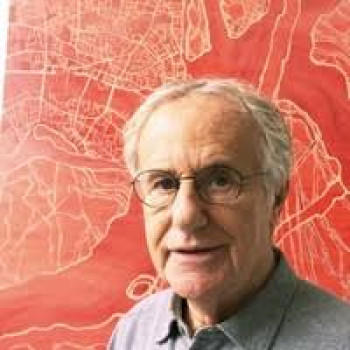 Seminar: Fast, Low-Invasive Visualization of EM-Very NearField Distributions around Wireless Communication/Sensing Devices: From Anechoic Chamber to Microscope - Professor Jean-Charles Bolomey, Paris-Saclay University, France Seminar: Fast, Low-Invasive Visualization of EM-Very NearField Distributions around Wireless Communication/Sensing Devices: From Anechoic Chamber to Microscope - Professor Jean-Charles Bolomey, Paris-Saclay University, FranceCentre for Electronics Click here to join the seminar online Summary While fast visualization of Electromagnetic (EM) field distribution is satisfactorily obtained by numerical modelling, it still constitutes a key challenge for measurements in a wide spectrum of demanding applications spreading from the early design and prototyping of antenna modules to final online fabrication and compliance testing of mass-produced connected devices. But recently, the rapidity of measurement has been improved thanks to... |
| Fri 17 Oct 2025 14:30 - 15:30 |  Seminar: Astronomy Unit Seminar - Richard Anslow - The cometary delivery of prebiotic feedstock molecules to the early Earth and rocky exoplanets Seminar: Astronomy Unit Seminar - Richard Anslow - The cometary delivery of prebiotic feedstock molecules to the early Earth and rocky exoplanetsCentre for Fundamental Physics An early period of cometary bombardment has long been speculated to be an important source of prebiotic feedstock molecules, required for the origins of life on Earth. In support of this interpretation, comets boast a rich diversity of volatile organic molecules, with many thought to be limiting for prebiotic chemistry. Modelling studies suggest, however, that a significant proportion of these fragile organic molecules will be destroyed during hypervelocity impact with Earth. In this talk I will... |
| Thu 16 Oct 2025 14:00 - 15:00 |  Seminar: Ginestra Bianconi (Queen Mary, U. of London, Math. Sci.) Seminar: Ginestra Bianconi (Queen Mary, U. of London, Math. Sci.)Centre for Fundamental Physics Gravity from Entropy Gravity is derived from an entropic action coupling matter fields with geometry called Gravity from Entropy action [1]. The fundamental idea is to relate the metric of Lorentzian spacetime to a quantum operator, playing the role of a renormalizable effective density matrix and to describe the matter fields topologically, according to a Dirac-Kähler formalism, as the direct sum of a 0-form, a 1-form and a 2-form. While the geometry of spacetime is defined by its metric,... |
| Thu 16 Oct 2025 14:00 - 15:00 | Seminar: Adrien Corenflos (Warwick): A coupling-based approach to f-divergences diagnostics for Markov chain Monte Carlo Centre for Probability, Statistics and Data Science A long-standing gap exists between the theoretical analysis of Markov chain Monte Carlo convergence, which is often based on statistical divergences, and the diagnostics used in practice. We introduce the first general convergence diagnostics for... |
| Wed 15 Oct 2025 12:00 - 13:00 | Seminar: Norberto Lucero-Azuara (QMUL): Modelling the movements of organisms by stochastic theory in a comoving frame
Centre for Probability, Statistics and Data Science How do living organisms move in their environment? While random walk models provide a foundation for understanding biological movement, they fall short in capturing the full complexity of movement patterns generated by living organisms. This study... |
| Wed 15 Oct 2025 12:00 - 13:00 | Protein & Gene Seminar
Centre for Molecular Cell Biology Title: Engineering biohybrid systems for bioelectrical communication and sustainable synthesis Speaker: Lin Su |
| Wed 15 Oct 2025 14:00 - 15:30 |  GAnG Seminar: Debasish Banerjee GAnG Seminar: Debasish BanerjeeCentre for Geometry, Analysis and Gravitation Abstract tbc |
| Wed 15 Oct 2025 15:00 - 18:00 | 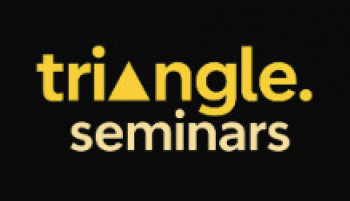 Conference: Triangle Seminars Conference: Triangle SeminarsCentre for Fundamental Physics 15:00 - Silviu Pufu (Princeton University) Abstract: The 1+1-dimensional adjoint QCD theory (namely SU(N) gauge theory coupled to a Majorana fermion in the adjoint representation of the gauge group) has the curious property that at a certain non-zero ratio of the fermion mass to the gauge coupling, it exhibits (1, 1) supersymmetry. I will shed some new light onto the supersymmetry of 2d adjoint QCD using several analytical and numerical methods, including the construction of a gauge-invariant,... |
| Tue 14 Oct 2025 14:00 - 15:30 |  GAnG Seminar: Felix Schulze - Revisiting generic mean curvature flow in R^3 GAnG Seminar: Felix Schulze - Revisiting generic mean curvature flow in R^3Centre for Geometry, Analysis and Gravitation Title: Revisiting generic mean curvature flow in R^3 Abstract: Bamler-Kleiner recently proved a multiplicity-one theorem for mean curvature flow in R^3 and combined it with our previous work on generic mean curvature flows (together with Chodosh, Choi and Mantoulidis) to fully resolve Huisken's genericity conjecture. In this talk we present an argument that shows that a short density-drop theorem plus the Bamler-Kleiner multiplicity-one theorem for tangent flows at the first nongeneric... |
| Mon 13 Oct 2025 11:00 - 12:00 | Seminar: The Road to Precision in Neutrino Physics - Prof. Deborah Palmer (York) Centre for Fundamental Physics Neutrino Oscillations are one of the precious few signatures of beyond the standard model physics. Oscillation measurements can give us new insight into what generates particle masses and what might generate the abundance of matter over antimatter... |
| Mon 13 Oct 2025 13:00 - 14:00 | 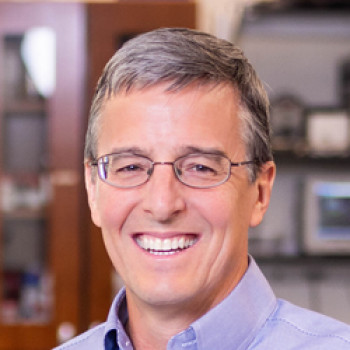 Seminar: Sir Peter Mansfield Lecture: "Bioelectronics – From Exploratory Research to Medical Translation" by Professor John Rogers, Querrey Simpson Institute for Bioelectronics, Northwestern University Seminar: Sir Peter Mansfield Lecture: "Bioelectronics – From Exploratory Research to Medical Translation" by Professor John Rogers, Querrey Simpson Institute for Bioelectronics, Northwestern University
Centre for Electronics Bioelectronics – From Exploratory Research to Medical Translation Please do register for the seminar at this link Advanced electronic/optoelectronic technologies designed to allow stable, intimate integration with living organisms will accelerate progress in biomedical research; they will also serve as the foundations for new approaches in monitoring and treating diseases. Specifically, capabilities for injecting miniaturized, biocompatible electronic systems and other components into... |
| Fri 10 Oct 2025 11:00 - 12:00 | 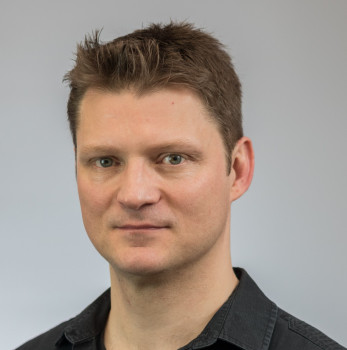 ARQ research seminar: Tactile Robotics for Human-like Dexterity ARQ research seminar: Tactile Robotics for Human-like Dexterity
Centre for Advanced Robotics Title: Tactile Robotics for Human-like Dexterity Speaker: Nathan Lepora, Professor of Robotics & AI Abstract: Billions are being invested in humanoids, ignoring that they won't be much use without hands as capable as those of humans. So how do you do you build a robot hand that functions as well as a human hand? I break this down into three main challenges: first, the form-factor and mechanical design of the hand; second, the tactile sensing capability of the hand; and third, how you... |
| Fri 10 Oct 2025 14:00 - 15:00 | Seminar: Lida Kanari (Oxford): From neurons to complex human networks using algebraic topology Centre for Probability, Statistics and Data Science Abstract: Topological data analysis (TDA), and in particular persistent homology, has provided robust results for numerous applications, such as protein structure, cancer detection, and material science. In neuroscience, TDA methods have proven... |
| Thu 9 Oct 2025 13:00 - 14:00 | Centre Meeting Centre for Complex Systems |
| Thu 9 Oct 2025 14:00 - 15:00 |  Seminar: Andrea L. Guerrieri (London, City U.) Seminar: Andrea L. Guerrieri (London, City U.)Centre for Fundamental Physics A fresh look at the Froissart bound The Froissart bound is the most celebrated result of the "analytic S-matrix" program. It sets an absolute upper limit on total cross-sections at asymptotically high energies in any relativistic quantum theory. In this talk I will discuss an alternative version of this problem and derive rigorous bounds on the cross-section at finite energy, combining analytic techniques and non-perturbative S-matrix bootstrap. I will then discuss the amplitude that... |
| Thu 9 Oct 2025 15:00 - 16:00 | Seminar: Jeroen Lamb (Imperial): Intermittent two-point dynamics at the transition to chaos for random circle endomorphisms Centre for Complex Systems We establish the existence of intermittent two-point dynamics and infinite stationary ergodic measures for a class of random circle endomorphisms with zero Lyapunov exponent, as a dynamical characterisation of the transition from synchronisation ... |
| Wed 8 Oct 2025 14:00 - 15:00 | Seminar: Ohad Vilk (Racah Institute of Physics, Hebrew University of Jerusalem): From Diffusion to Strong Anomalous Diffusion: Modeling Movement of Free-Ranging Birds
Centre for Probability, Statistics and Data Science Abstract: Anomalous diffusion, characterized by a nonlinear dependence of the mean-squared displacement on measurement time, is prevalent in nature, ranging from molecular motion at microscopic scales to the large-scale trajectories of migrating... |
| Tue 7 Oct 2025 12:00 - 13:00 | 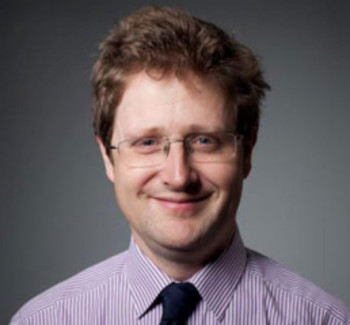 SEMS Seminars: Professor Simon Holmes, Consultant Oral and Maxillofacial Surgeon, Barts Health NHS Trust, and Professor of Craniofacial Traumatology, Queen Mary University of London SEMS Seminars: Professor Simon Holmes, Consultant Oral and Maxillofacial Surgeon, Barts Health NHS Trust, and Professor of Craniofacial Traumatology, Queen Mary University of LondonCentre for Bioengineering Seminar Title: Understanding the Biomechanical Construct of the Craniofacial Skeleton: Testing to Failure and Reconstruction Abstract: The craniofacial skeleton plays a vital role in both function and aesthetics, yet it is uniquely vulnerable to trauma. In this seminar, Professor Simon Holmes will explore the biomechanical principles underlying craniofacial injuries, focusing on mechanisms of fracture, approaches to reconstruction, and the role of translational research in advancing... |
| Tue 7 Oct 2025 14:00 - 15:00 | 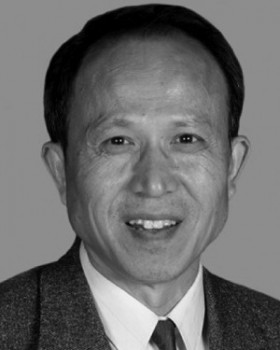 Seminar: Large AI Model for Wireless Communications Seminar: Large AI Model for Wireless CommunicationsCentre for Networks, Communications and Systems Speaker: Prof. Jiangzhou Wang Moderattor: Prof. Arumugam Nallanathan Abstract: Intelligent communications has been considered as a promising direction for the next generation wireless communications. However, legacy AI or small AI are facing some difficulties for the application to the wireless communications. In this talk, the background and learning of the large AI model will be introduced. The recent research results of the large AI model will be presented for wireless communications... |
| Tue 7 Oct 2025 14:00 - 15:30 |  GAnG Seminar: Gianmichele Di Matteo - Higher dimensional Sacks-Uhlenbeck approximation GAnG Seminar: Gianmichele Di Matteo - Higher dimensional Sacks-Uhlenbeck approximationCentre for Geometry, Analysis and Gravitation Title: Higher dimensional Sacks-Uhlenbeck approximation Abstract: In this talk, we will describe a generalization of Sacks-Uhlenbeck's existence of harmonic 2-spheres result to higher dimensional domains, that is we construct non-trivial, regular, n-harmonic n-spheres in suitable target manifolds. The proof follows a similar perturbative argument, which in high dimensions leads to a degenerate and double-phase-type Euler-Lagrange system, making the uniform regularity needed to formalise... |
| Tue 7 Oct 2025 15:00 - 16:00 | 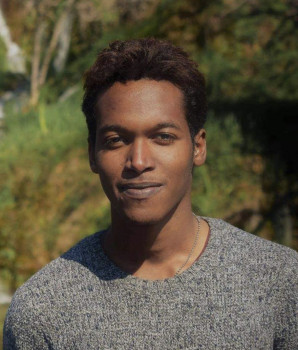 Seminar: The Shape of Knowledge: From Hidden Structure to Data-Efficient Machine Learning Seminar: The Shape of Knowledge: From Hidden Structure to Data-Efficient Machine LearningCentre for Networks, Communications and Systems Speaker: Dr. Alec Diallo Moderator: Dr Ignacio De Castro Arribas Abstract: More data has long been the recipe for better machine learning. But what if the real frontier is not in scale, but in structure? In this talk, I will show how hidden geometries of data, captured through Proximally-Connected graphs, can be made explicit and actionable. This structural view allows us to determine when meaningful patterns exist, and to distill large datasets into compact subsets that retain their full... |
| Mon 6 Oct 2025 12:00 - 12:30 | Seminar: Precision at Peak Performance: CMS Delivers the Most Precise Luminosity Measurement at any bunched-beam hadron collider - Prof. Chris Palmer (Maryland) Centre for Fundamental Physics Luminosity measurements are foundational elements of collider physics measurements and searches. Its precise determination is essential for accurate cross-section measurements and new physics searches. In this talk, the most precise luminosity... |
| Thu 2 Oct 2025 13:00 - 14:00 | Seminar: Xueming Liu (Huazhong U): Directed Networks and Critical Translations Centre for Complex Systems This talk follows one narrative from collapse to repair in directed, multilayer networks. In interdependent systems we show how direction reshapes tipping behaviour, producing rich phase structure and abrupt failures under targeted perturbations; the... |
| Thu 2 Oct 2025 14:00 - 15:00 | Seminar: Eleni Matechou (QMUL): Applications of Bayesian nonparametric models to ecological data
Centre for Probability, Statistics and Data Science Abstract: Ecological surveys often track individuals from wildlife populations using methods such as traps or nets, aiming to estimate population size and to monitor processes such as migration patterns, behavioural change, or life state transitions.... |
| Wed 1 Oct 2025 13:00 - 17:30 | 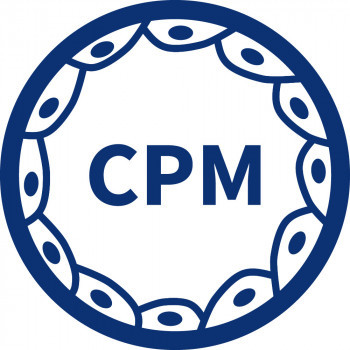 2025 UK Organ-on-a-Chip Symposium 2025 UK Organ-on-a-Chip SymposiumCentre for Bioengineering 1 October 2025 Please register at: https://www.eventbrite.co.uk/e/2025-uk-organ-on-a-chip-symposium-tickets-1470416387999?aff=oddtdtcreator Join us for a program of UK and international speakers, working at the cutting edge of organ-chip research. The full program is below, and confirmed speakers include: Professor Ignacio Ochoa (University of Zaragoza) Professor Rocky Tuan (Chinese University of Hong Kong / University of Pittsburgh) Professor Roisin Owens (University... |
| Wed 1 Oct 2025 13:30 - 15:30 | Seminar: The Potent Power of the Penguin - Dr Mark Smith (Imperial) Centre for Fundamental Physics Flavour changing neutral currents are suppressed in the Standard Model, making them a prime avenue to search for new physics. Over the past decade a consistent set of discrepancies between experimental measurements and theoretical expectations in b-... |
| Wed 1 Oct 2025 14:00 - 15:00 | Seminar: Luca Giuggioli (University of Bristol): First-passage dynamics of a stochastic searcher in disordered systems
Centre for Probability, Statistics and Data Science Abstract: Understanding how spatial disorder affects the random search of a diffusing particle or agent is fundamental to a myriad of applications across disciplines. To quantify how spatial heterogeneities may affect the dynamics of first-passage... |
September 2025 | |
| Tue 30 Sep 2025 14:00 - 15:30 |  GAnG Seminar: Davide Parise (From phase transitions to minimal submanifolds in low codimensions) GAnG Seminar: Davide Parise (From phase transitions to minimal submanifolds in low codimensions)Centre for Geometry, Analysis and Gravitation From phase transitions to minimal submanifolds in low codimensions: Abstract: Proving existence of minimal submanifolds (i.e. critical points of the area functional) in various settings has been one of the driving forces of the development of modern calculus of variations, and geometric measure theory, with remarkable applications in differential geometry. In the 1960s Almgren developed a far-reaching technique to prove existence of (measure theoretic versions of) these objects. While... |
| Mon 29 Sep - Fri 3 Oct 2025 | 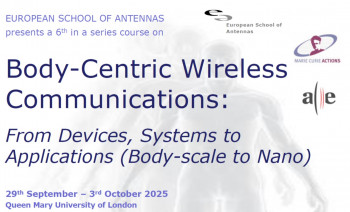 European School of Antennas Course on: BODY-CENTRIC WIRELESS COMMUNICATION: from devices, systems to applications (body-scale to nano) European School of Antennas Course on: BODY-CENTRIC WIRELESS COMMUNICATION: from devices, systems to applications (body-scale to nano)Centre for Electronics In the framework of the European School of Antennas and Propagation (ESoA), we are delighted to share the final announcement for the 6th in a series course on Body-Centric Wireless Communication: From Devices, Systems to Applications (Body-scale to Nano), which will take place at Queen Mary University of London, UK, from 29 September to 3 October 2025. This advanced course will cover the fundamentals, challenges, and cutting-edge developments in body-centric wireless communications, spanning... |
| Mon 29 Sep 2025 13:45 - 14:45 | 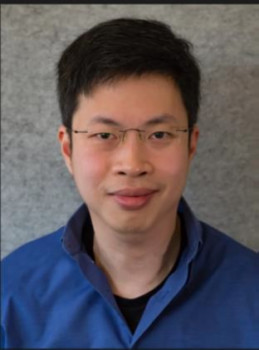 Seminar: Terahertz Technology: from Devices and Systems towards Sensing and Communications - Prof. W. Withayachumnankul, The University of Adelaide, Australia Seminar: Terahertz Technology: from Devices and Systems towards Sensing and Communications - Prof. W. Withayachumnankul, The University of Adelaide, AustraliaCentre for Electronics Click here to join the seminar online Summary Recent advancement in terahertz technology has spurred an ongoing paradigm shift in the field from physics to engineering. Consequently, the field inches closer towards practical applications in sensing and communications. Soon, we can envisage deployment of terahertz systems for in-situ non-destructive evaluation, stand-off security screening, and 6G+ communications with terabit-per-second data rates. Here in this talk, I will provide an... |
| Thu 25 Sep 2025 13:00 - 14:00 | Seminar: Yongzheng Sun (China U of Mining and Technology): Oscillations and Resilience of Ecological Networks Centre for Complex Systems Understanding the transition from stability to instability in ecosystems is crucial for maintaining ecosystem functionality and preserving biodiversity. In this talk, I will examine this issue from a network science perspective, investigating how... |
| Thu 25 Sep 2025 14:00 - 15:00 | 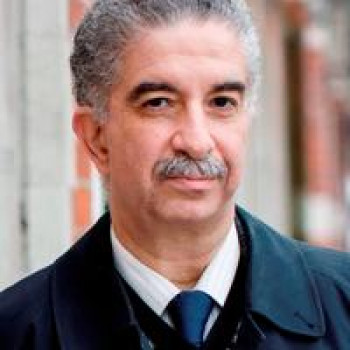 Seminar: ARQ Seminar Talk: Humanoid Robotics for Waste Recycling and Management: A Technical Overview Seminar: ARQ Seminar Talk: Humanoid Robotics for Waste Recycling and Management: A Technical Overview
Centre for Advanced Robotics Title: Humanoid Robotics for Waste Recycling and Management: A Technical Overview Speaker: Dr. Namdar Baghaei-Yazdi, ESG Director, TeknTrash Robotics Abstract: Global waste exceeds 2.3 billion tonnes annually, with less than 20% recycled. Manual sorting remains hazardous and inefficient, driving the need for robotic solutions. This talk presents a humanoid robotic system, developed by TeknTrash Robotics, integrating dexterous manipulation with AI-driven perception for complex waste streams... |
| Wed 24 Sep 2025 13:00 - 14:00 | Seminar: Sidney Holden (Flatiron Institute): A continuum limit for dense spatial networks Centre for Complex Systems Many physical systems—such as optical waveguide lattices and dense neuronal or vascular networks—can be modeled by metric graphs, where slender "wires" (edges) support wave or diffusion equations subject to Kirchhoff boundary conditions at the... |
| Wed 24 Sep 2025 14:00 - 15:30 |  Seminar: GAnG Weekly Seminar: (NOTE CHANGE OF DAY): Sebastian Woodward, Oxford: Quantitative Stability Estimates for almost minimising maps of the Dirichlet Energy Seminar: GAnG Weekly Seminar: (NOTE CHANGE OF DAY): Sebastian Woodward, Oxford: Quantitative Stability Estimates for almost minimising maps of the Dirichlet EnergyCentre for Geometry, Analysis and Gravitation Quantitative Stability Estimates for almost minimising maps of the Dirichlet Energy A natural question in the study of many variational problems is the quantitative stability of minimisers, i.e. the question of whether, and at what rate, the distance to the set of minimisers can be controlled in terms of the energy defect. In this talk, I will present joint work with Professor Melanie Rupflin, which establishes quantitative stability estimates for degree one maps of the Dirichlet Energy from... |
| Fri 19 Sep 2025 11:30 - 12:30 | 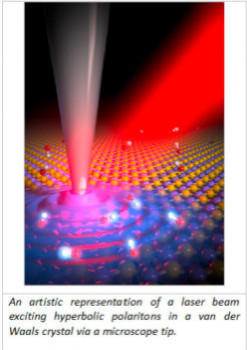 Seminar: "Hyperbolic light in 2D materials" - Dr. Alexey Nikitin, The Donostia International Physics Center (DIPC) Seminar: "Hyperbolic light in 2D materials" - Dr. Alexey Nikitin, The Donostia International Physics Center (DIPC)Centre for Electronics Click here to join the online meeting Summary The propagation of light through various media has long been a subject of fundamental interest in physics. Optical phenomena such as diffraction, scattering, and emission are not only rich in physical content but also central to applications in information processing, imaging, security, and medicine—making research in optics both scientifically and socially relevant. While most optical effects in conventional isotropic media are well... |
| Thu 18 Sep 2025 13:00 - 14:00 | Seminar: Piero Mazzarisi (U Siena): Realized Random Graphs, a new inferential methodology for dynamic networks, with an application to the Interbank market Centre for Complex Systems We introduce a new inferential methodology for dynamic network models driven by latent state variables. The main idea is to obtain a noisy representation of the state variables' dynamics by computing a sequence of cross-sectional estimates of the... |
| Wed 17 Sep 2025 14:00 - 15:00 | New staff presentation by Dr Paul Anthony Haigh : My Vision for Integration and Future Directions at EECS and QMUL Centre for Networks, Communications and Systems In this talk, as a new member of staff at QMUL, Paul will give an overview of his track record to date, including key research highlights and contributions in areas such as digital signal processing, advanced modulation formats and optical networks.... |
| Mon 15 Sep 2025 11:30 - 17:00 | Applied Algebra and Geometry Network Meeting Centre for Combinatorics, Algebra and Number Theory The twenty-second meeting of the Applied Algebra and Geometry Research Network will be held on Monday 15 September hosted by the School of Mathematical Sciences, Queen Mary University of London. Talks will be held in the Arts Two Building, Room 3... |
| Wed 10 - Thu 11 Sep 2025 | 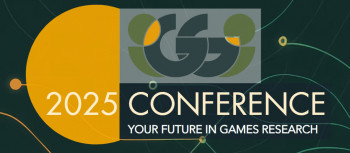 Conference: Intelligent Games and Game Intelligence Conference (2025) Conference: Intelligent Games and Game Intelligence Conference (2025)Centre for Multimodal AI The annual iGGi conference brings together PhD researchers (PGRs), supervisors and staff from the EPSRC Centre for Doctoral Training in Intelligent Games and Game Intelligence (iGGi) with practitioners from industry and the third sector. We will share our latest work and forge new connections for research collaborations and placements. With over 120 recruited PhDs, iGGi is the world's largest doctoral programme in games research. iGGi advances game development across two fronts: Intelligent... |
| Wed 10 Sep 2025 | Conference: The London Consortium for Cryo-EM (LonCEM) annual symposium Centre for Molecular Cell Biology The programme featured talks from industry showcasing the use of this technology, a keynote lecture, and presentations from consortium partner institutions, including QMUL. The day concluded with a panel discussion on "Exploring the Future of Cryo-EM... |
| Mon 8 - Wed 10 Sep 2025 | 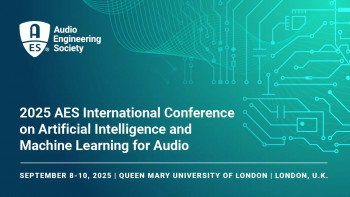 Conference: 2025 AES International Conference on Artificial Intelligence and Machine Learning for Audio Conference: 2025 AES International Conference on Artificial Intelligence and Machine Learning for AudioCentre for Multimodal AI First AES International Conference on Artificial Intelligence and Machine Learning for Audio (AIMLA 2025), London, Sept. 8-10, 2025 The Audio Engineering Society invites audio researchers and practitioners, from academia and industry to participate in the first AES conference dedicated to artificial intelligence and machine learning, as it applies to audio. This 3 day event aims to bring the community together, educate, demonstrate and advance the state of the art. It will feature keynote... |
| Thu 4 - Fri 5 Sep 2025 | 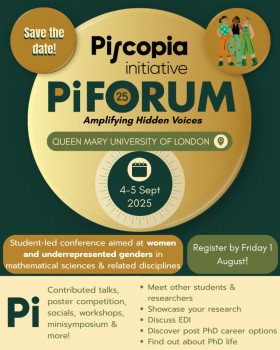 PiFORUM 25 PiFORUM 25Faculty of Science and Engineering The School of Mathematical Sciences is hosting PiFORUM25. This is a two day symposium dedicated to supporting women and underrepresented genders in mathematics, statistics, and related disciplines. This year's theme, Amplifying Hidden Voices, will include a mini-symposium on Post-PhD Career Journey, a series of contributed talks, a poster competition, workshops on mathematical communication and social activities to foster connection. The event is organised by the QMUL branch of Piscopia. |
| Tue 2 Sep 2025 12:00 - 13:00 | 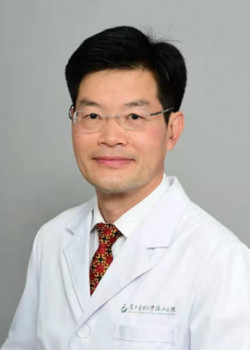 SEMS Seminars: Prof Qian Wang, Zhujiang Hospital, Southern Medical University SEMS Seminars: Prof Qian Wang, Zhujiang Hospital, Southern Medical UniversityCentre for Bioengineering Seminar Title: Current Research on Extracellular Vesicles in China - from Bench to Bedside About the speaker: Professor Qian Wang, MD, PhD is Professor and Chief Physician at Zhujiang Hospital, Southern Medical University. He earned both his MD and PhD from Southern Medical University and later undertook postdoctoral research at the University of Oxford. Prof. Wang's career spans precision diagnosis of cardiovascular diseases, fundamental and applied studies on extracellular vesicles, and... |
August 2025 | |
| Wed 27 - Fri 29 Aug 2025 | 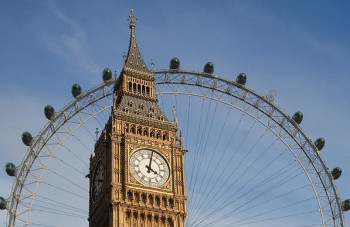 TIME: 32st International Symposium on Temporal Representation and Reasoning TIME: 32st International Symposium on Temporal Representation and ReasoningCentre for Fundamentals of AI and Computational Theory Queen Mary University of London is proud to host the 32nd International Symposium on Temporal Representation and Reasoning—the premier annual event dedicated to the study of time in computer science. For over two decades, TIME has been the only multidisciplinary international symposium focusing on temporal representation and reasoning, bringing together researchers from diverse fields such as Artificial Intelligence, Temporal Logic, Verification, and Temporal Databases. In recent years, the... |
| Fri 22 Aug 2025 14:30 - 16:30 | 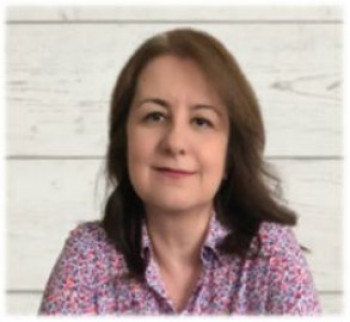 Seminar: Fundamentals of Computational Electromagnetics: From Basics to Mastery - Professor Özlem Özgün from Hacettepe University, Ankara, Turkey Seminar: Fundamentals of Computational Electromagnetics: From Basics to Mastery - Professor Özlem Özgün from Hacettepe University, Ankara, TurkeyCentre for Electronics (Click Here to Join the Seminar on Teams) Summary Computational Electromagnetics (CEM) is an interdisciplinary field that combines principles from electrical engineering, physics, mathematics, and computer science to simulate and analyze electromagnetic phenomena. It serves as a cornerstone for the design and optimization of practical systems such as antennas, microwave circuits, radars, satellites, wireless communication devices, and emerging applications in nanophotonics and biomedical... |
July 2025 | |
| Tue 29 Jul 2025 12:00 - 13:00 |  SEMS seminars: Associate Professor Haguy Wolfenson, Rappaport Faculty of Medicine at the Technion, Israel Institute of Technology SEMS seminars: Associate Professor Haguy Wolfenson, Rappaport Faculty of Medicine at the Technion, Israel Institute of Technology
Centre for Bioengineering Title: Understanding and modulating cell fate decisions mediated by cell-ECM interactions Abstract: Cellular interactions with the extracellular matrix (ECM) play a fundamental role in essential cell functions. The ECM provides mechanical and biochemical cues that influence intracellular signaling and gene expression, leading to different cell fate decisions. In this talk, I will share our latest research on how ECM cues influence cellular decision-making and explore how these processes... |
| Wed 23 Jul 2025 15:00 - 16:00 | 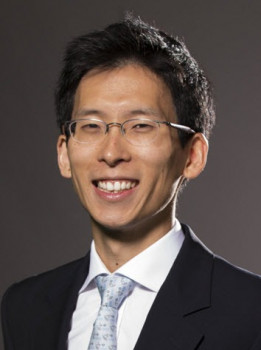 Bioengineering Research Seminar: Advancing cell and gene therapy via microfluidics - Prof Aram Chung, Korea University Bioengineering Research Seminar: Advancing cell and gene therapy via microfluidics - Prof Aram Chung, Korea UniversityCentre for Bioengineering Title: Advancing cell and gene therapy via microfluidics Abstract: Engineering and reprogramming innate cell functions require the efficient delivery of biomolecules—such as DNA, RNA, plasmids, proteins, and nanomaterials—into the cytosol or nucleus. Conventional methods, including viral vectors, cationic lipids, and electroporation, are widely used but often fall short in achieving both high delivery efficiency and robust cell viability, while preserving cellular phenotype and... |
| Fri 11 Jul 2025 10:00 - 18:30 | 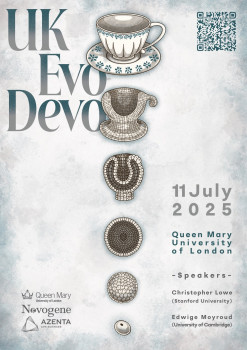 Conference: UK EvoDevo Conference: UK EvoDevo Centre for Evolutionary and Functional Genomics The UK EvoDevo meeting is a one-day conference that brings together the UK-based community in evolutionary developmental biology. The keynote speakers for this edition are Dr Edwige Moyroud (University of Cambridge) and Prof Christopher Lowe (Stanford University). To submit your abstract for oral or poster presentation, go to this webpage, where you can also indicate dietary preferences and any mobility restrictions. For further information, see the london evo-devo's webpage Fee: £5... |
| Wed 9 Jul 2025 14:00 - 15:00 | Seminar: CIS seminar by Dr Taein Kwon: Egocentric Understanding: A Path to Context-Aware AI Centre for Multimodal AI You are cordially invited to the Centre for Intelligent Sensing seminar from an external speaker: Speaker: Dr Taein Kwon, Postdoctoral fellow at VGG, University of Oxford (https://taeinkwon.com/) Title of talk: Egocentric Understanding: A Path to... |
| Mon 7 Jul 2025 | 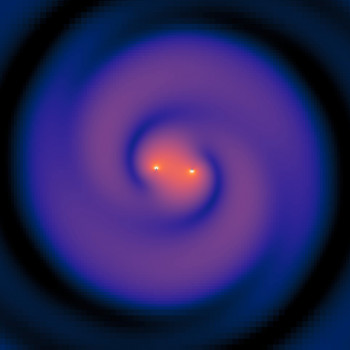 2pm Seminar: Adrian Chung, METRICS as a bridge between black-hole ringdown signals and fundamental physics 2pm Seminar: Adrian Chung, METRICS as a bridge between black-hole ringdown signals and fundamental physicsCentre for Geometry, Analysis and Gravitation Abstract: Many of the gravitational-wave signals detected by the LIGO-Virgo-KAGRA detectors end with exponentially decaying waves emitted by the remnant black holes formed by the corresponding binary black-hole coalescence. The frequencies and lifetimes of these decaying waves are called quasinormal mode frequencies, and they are closely related to the dynamics of the spacetime near the horizon of the remnant black hole. In this connection, detecting black-hole quasinormal modes is a powerful... |
| Mon 7 - Tue 8 Jul 2025 | 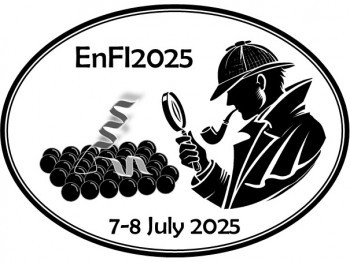 16th International Workshop on Engineering of Functional Interfaces (EnFI2025) 16th International Workshop on Engineering of Functional Interfaces (EnFI2025)Centre for Bioengineering Register at: https://www.sems.qmul.ac.uk/events/enfi2025/ We are excited to announce the 16th International Workshop on the Engineering of Functional Interfaces (EnFI 2025), taking place at Queen Mary University of London on 7th and 8th July 2025. EnFI is a dynamic, multidisciplinary international workshop. It covers all aspects of functional interfaces from materials science, physics, chemistry and engineering to medicine and biology. Why Attend EnFI 2025? Gain insights from... |
| Thu 3 Jul 2025 10:30 - 16:30 | 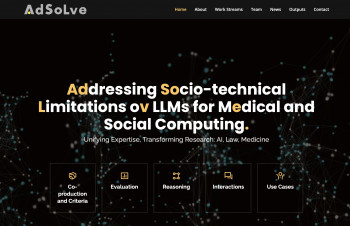 Evaluating AI for legal reasoning and support Evaluating AI for legal reasoning and supportCentre for Human-Centred Computing This is your opportunity to engage directly with experts and the latest innovations from the AdSoLve project (https://adsolve.github.io), a major UKRI and RAi-funded project focused on building AI that genuinely works in complex, high-stakes domains like law and medicine. Come and hear about real-world legal use cases that explore how generative AI is being integrated into legal workflows. Discover new research that pushes legal AI past simple logic chains and into richer forms of reasoning... |
| Thu 3 Jul 2025 14:00 - 15:00 |  Seminar: Future Directions of Wireless Links: Performance, Packaging
and Integration - Professor John L. Volakis from Florida International University, USA Seminar: Future Directions of Wireless Links: Performance, Packaging
and Integration - Professor John L. Volakis from Florida International University, USACentre for Electronics Click here to join the seminar online Summary The rapid evolution of wireless communications with potentially 3 orders of magnitude in higher data connectivity and a goal of Terabit per second speeds for wired/chip-to-chip data transfers is upon us for the next decade. These speeds are needed to enable short range (a few meters) and long-range communications (km and satellite links) for distributed systems that will realize visions for tactile internet and haptic communications, virtual... |
June 2025 | |
| Mon 30 Jun 2025 09:00 - 18:00 | Conference: Inaugural Symposium of the Centre for Molecular Cell Biology at QMUL Centre for Molecular Cell Biology Welcome to the Inaugural Symposium of the Centre for Molecular Cell Biology at Queen Mary University of London. We're pleased to host a day of scientific exchange featuring keynote lectures, a panel discussion on 'Engineering Biology', research talks... |
| Tue 24 Jun 2025 11:00 - 12:00 | 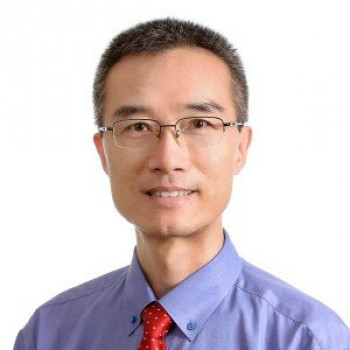 Seminar: Speech and Music AI: Connecting the Dots of AI and Human Potential by Prof. Ye Wang Seminar: Speech and Music AI: Connecting the Dots of AI and Human Potential by Prof. Ye WangCentre for Multimodal AI QMUL, School of Electronic Engineering and Computer Science Centre for Digital Music Seminar Series Seminar by: Prof. Ye Wang (National University of Singapore) Date/time: Tuesday, 24th June 2025, 11am Location: Room GC201, Graduate Centre, Mile End Campus, QMUL Title: Speech and Music AI: Connecting the Dots of AI and Human Potential Abstract: Speech and music are traditionally studied by different research communities. In this talk, I will share some insights from my journey of... |
| Mon 16 Jun 2025 18:00 - 20:00 | 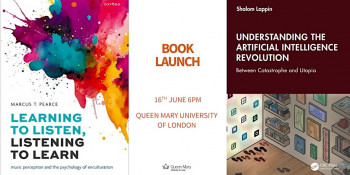 Double Book Launch:
"Learning to Listen, Listening to Learn" by Marcus Pearce and
"Understanding the Artificial Intelligence Revolution by Shalom Lappin. Double Book Launch:
"Learning to Listen, Listening to Learn" by Marcus Pearce and
"Understanding the Artificial Intelligence Revolution by Shalom Lappin.Centre for Human-Centred Computing Join us to celebrate the publication of two books: Marcus Pearce Learning to Listen, Listening to Learn: Music Perception and the Psychology of Enculturation Learning to listen, Listening to Learn presents a unified theory of music perception based on psychological processes of statistical learning and probabilistic prediction. It develops and evaluates a computational model of the perceptual learning underlying cultural evolution of music, accounting for the human capacity to perceive... |
| Wed 11 Jun 2025 09:00 - 16:50 | 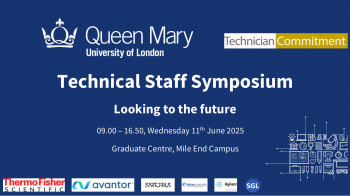 Technical Staff Symposium: Looking to the future Technical Staff Symposium: Looking to the futureFaculty of Science and Engineering The QMUL Technical Staff Symposium will take place on June 11 from 9:00 to 16:50 in the Graduate Centre. Join us for a day filled with insightful discussions, networking opportunities, and knowledge sharing among technical staff members. This event is designed to celebrate the hard work and dedication of our technical teams. Don't miss out on engaging workshops and presentations led by industry experts. Whether you're a seasoned professional or just starting your career, there's something... |
| Wed 11 Jun 2025 12:00 - 13:00 | Seminar: Monte Carlo Tree Search for Chemistry and Biology by Prof. Tristan Cazenave Centre for Multimodal AI Game AI seminar by Prof. Tristan Cazenave: Monte Carlo Tree Search for Chemistry and Biology When/where: Wednesday 11 June, 12:00, QMUL, Mile End Campus, Laws 112 - hybrid option available upon request Title: Monte Carlo Tree Search for... |
| Tue 10 - Thu 12 Jun 2025 | Conference: Charting Complexity Centre for Complex Systems This conference brings together leading researchers and innovators working across disciplines to explore how complexity shapes the world around us. From emergent collective behavior to the structure and dynamics of networks, from Computational Social... |
| Tue 10 Jun 2025 11:30 - 12:30 | 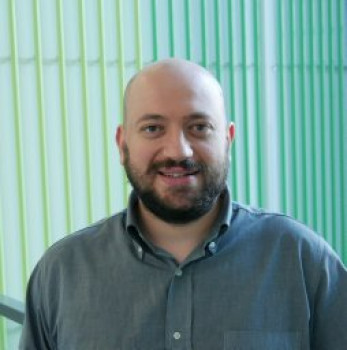 Seminar: Terahertz and Water presented by Dr Fabio Novelli from The University of Southampton Seminar: Terahertz and Water presented by Dr Fabio Novelli from The University of SouthamptonCentre for Electronics Click Here for Teams Link Summary An inherently powerful tool to study liquid water is terahertz (THz) radiation because it can reveal the sub-ps fluctuations of the water network: radiation between about 1 and 25 THz is strongly absorbed by intermolecular collective modes of hydrogen-bonded water molecules, which can be thought of as "small and short-lived phonons". The talk is divided into two parts. In the first part I will describe a novel approach, dubbed "intense THz time-domain... |
| Tue 10 Jun 2025 12:00 - 13:00 | 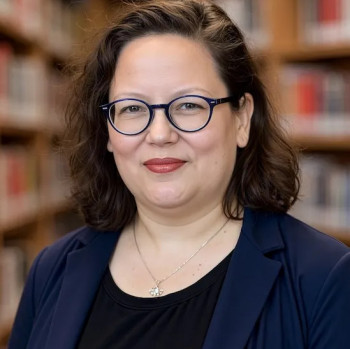 Digital twins to improve maternal and fetal health Digital twins to improve maternal and fetal healthCentre for Bioengineering Engineering and Women's Health Michelle Oyen is a global leader in bioengineering and women's health. She has investigated many diseases and designed approaches in engineering to prevent, diagnose and treat pregnancy complications such as preterm birth. Approaches include the development of multi-scale models of transport mechnisms in the placenta, microstructural fracture models of uterine-placental interface delamination, and digital twins of C-section scar pregnancy. At the seminar,... |
| Tue 10 Jun 2025 14:00 - 15:00 | 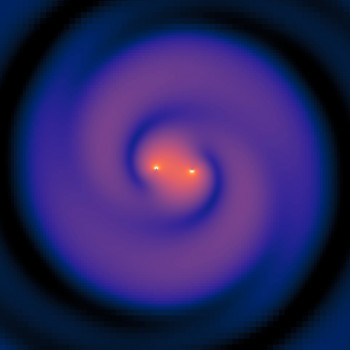 Seminar: Spyros Alexakis from University of Toronto: Reconstructions of space-times from scattering data. Seminar: Spyros Alexakis from University of Toronto: Reconstructions of space-times from scattering data.Centre for Geometry, Analysis and Gravitation Title: Reconstructions of space-times from scattering data. Abstract: I address the problem of reconstructing space-times from measurements of their scattering data for suitable wave equations on the background geometry. For linear waves, the reconstruction allows one to reconstruct just the operator itself, assuming knowledge of the background geometry; moreover the best results deal with ``finite'' scattering, where measurements do no occur at infinity, but rather on a suitably long... |
| Mon 9 Jun 2025 | Curvature Flows Workshop Centre for Geometry, Analysis and Gravitation This one day workshop on Curvature Flows will take at Queen Mary University of London and features talks by international experts on mean curvature flow, Yamabe flow and curve shortening flow. |
| Fri 6 Jun 2025 11:00 - 12:00 | Seminar: Centre for Digital Music Seminar by Tuomas Eerola: Computational Recognition of Emotions in Music: A Meta-Analysis and Critical Review Centre for Multimodal AI QMUL, School of Electronic Engineering and Computer Science Centre for Digital Music Seminar Series Seminar by: Tuomas Eerola (Durham University) Date/time: Friday, 6th June 2025, 11am Location: G2, Engineering Building, Mile End Campus, Queen... |
| Wed 4 - Fri 6 Jun 2025 | Advances in Hyperbolic Problems Centre for Geometry, Analysis and Gravitation The aim of the workshop is to exchange the recent progress and ideas in the field of hyperbolic PDEs and its applications. This workshop brings together leading experts and young researchers to discuss the latest advances in hyperbolic problems,... |
| Tue 3 - Wed 4 Jun 2025 |  Gravitational Wave Initiative meeting 2025 Gravitational Wave Initiative meeting 2025Centre for Geometry, Analysis and Gravitation The GWI at Queen Mary will host its second annual meeting on 03-04 June 2025. Following the success of last year's inaugural workshop and GWI lectures, this two-day event will have both colloquiuum-style talks and pedagogical lectures from leading experts in the field. There is no registration and all are welcome to attend. We will have a colloquium style talk by David Shoemaker (MIT) and one by Riccardo Sturani (ICTP - SAIFR) together with six pedagogical lectures from leading experts in... |
| Mon 2 Jun 2025 11:00 - 12:00 | 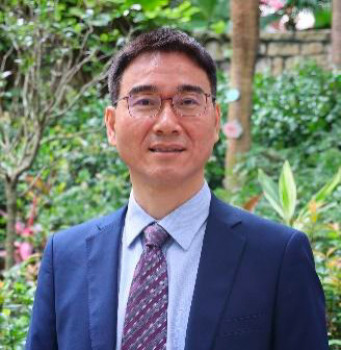 Seminar: Smart Non-Contact Wireless Sensing for Biomedical Applications - Prof Yongxin Guo, City University of Hong Kong Seminar: Smart Non-Contact Wireless Sensing for Biomedical Applications - Prof Yongxin Guo, City University of Hong KongCentre for Electronics Click Here to Join the Seminar Online Summary Traditional life activity detection methods rely on contact sensors, such as the electrocardiogram (ECG), ballistocardiogram (BCG), photoplethysmography (PPG), sphygmomanometer, mercury thermometer, breath belt, and accelerometer-based wearable devices. The contact sensor-based methods can cause physical and psychological discomfort to the users, and some do not support long-term monitoring. Smart wireless sensing of vital signs, including... |
May 2025 | |
| Thu 29 May 2025 11:00 - 12:00 | Seminar: Centre for Digital Music Seminar by Alberto Bernardini: Differentiable Physical Models of Acoustic Systems for Audio Signal Processing Centre for Multimodal AI QMUL, School of Electronic Engineering and Computer Science EECS Seminar & Centre for Digital Music Seminar Series Seminar by: Alberto Bernardini (Politecnico di Milano) Date/time: Thursday, 29th May 2025, 11am Location: GC204, Graduate Centre... |
| Thu 29 May 2025 15:00 - 16:00 | 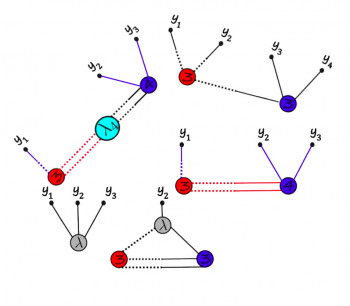 Seminar: Cosmological correlators in gravitationally constrained de Sitter states, Tuneer Chakraborty from Tata Institute of Fundamental Research (TIFR), Mumbai Seminar: Cosmological correlators in gravitationally constrained de Sitter states, Tuneer Chakraborty from Tata Institute of Fundamental Research (TIFR), MumbaiCentre for Geometry, Analysis and Gravitation Abstract : We study perturbative cosmological correlators in wavefunctionals which solve the Wheeler-DeWitt equation in asymptotically de Sitter spacetimes and were constructed in arxiv:2303.16315. Even in the G_N -> 0 limit, it is necessary to impose the gravitational Gauss law, which forces states to be de Sitter invariant. We set up Feynman rules for computing cosmological correlators in such states. We enumerate some necessary (but not sufficient) conditions that must be imposed on states... |
| Wed 28 May 2025 14:00 - 15:00 | 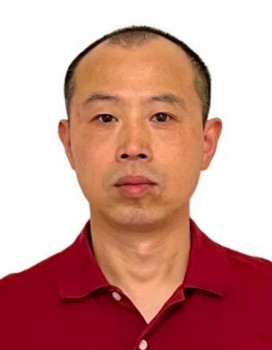 Seminar: IEEE Distinguished Lecture on Sensor Location Optimisation for Effective and Robust Beamforming Seminar: IEEE Distinguished Lecture on Sensor Location Optimisation for Effective and Robust BeamformingCentre for Electronics Online Teams Link Summary In many applications, the sensor array's geometrical layout is assumed to be fixed and given in advance. However, it is possible to change the geometrical layout of the array including adjacent sensor spacing and these additional spatial degrees of freedom (DOFs) can be exploited to improve the performance in terms of either beamforming or direction finding or both. With the development of compressive sensing (CS) or the sparsity maximization framework, a new CS... |
| Wed 28 May 2025 14:00 - 15:00 |  Seminar: Phillipo Lappicy (Universidad Complutense de Madrid): Oscillatory spacelike singularities: The Bianchi type VI_{-1/9} vacuum models Seminar: Phillipo Lappicy (Universidad Complutense de Madrid): Oscillatory spacelike singularities: The Bianchi type VI_{-1/9} vacuum modelsCentre for Geometry, Analysis and Gravitation The Bianchi type VI_{-1/9}, VIII and IX vacuum models all have 4-dimensional Hubble-normalized state spaces and are expected to have a generic initial oscillatory singularity, but the invariant boundary sets responsible for the oscillations are much more complicated for type VI_{-1/9} than those of type VIII and IX. For the first time, we explicitly solve the equations on these type VI_{-1/9} boundary sets and also introduce a new graphic representation of the associated network of heteroclinic... |
| Tue 27 May 2025 14:00 - 15:00 | 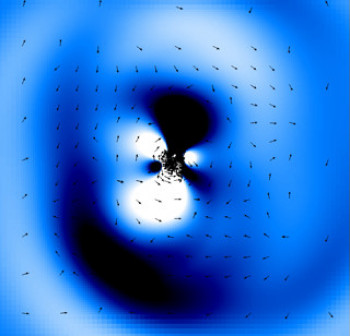 Seminar: GAnG seminar - Sadra Jazayeri - Uplifting Massive Graphs from Minkowski to de Sitter Seminar: GAnG seminar - Sadra Jazayeri - Uplifting Massive Graphs from Minkowski to de SitterCentre for Geometry, Analysis and Gravitation Identifying useful flat-space limits of cosmological correlators—defined on the future boundary of de Sitter space—is challenging due to their inherent scale invariance. In this talk, I present a massive flat-space limit in which cosmological correlators arising from the exchange of heavy fields can be expressed in terms of massive Feynman diagrams in Minkowski space. As a phenomenological application, I use this limit to compute the imprints of massive particles during inflation on... |
| Tue 27 May 2025 15:00 - 16:00 | Hernan Makse (City U New York): Can symmetry describe Biological (and Artificial) complexity? Centre for Complex Systems Symmetry is the cornerstone of theoretical physics, playing a crucial role across various scales. The pervasive presence of symmetries in the physical universe compels us to examine the question: if life arises as an emergent property from physical... |
| Thu 22 May 2025 11:00 - 12:00 | 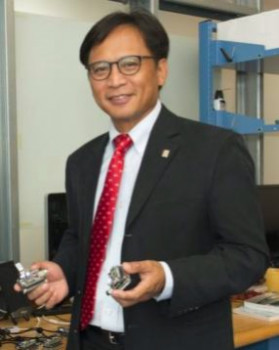 Seminar: Quantum Nexus For Sensing, Communication, Control, And Computing Seminar: Quantum Nexus For Sensing, Communication, Control, And ComputingCentre for Electronics Click here to join the seminar online Summary Recent advancements in quantum information science are poised to unleash new sensing, communication, control, and computing (SC3) capabilities. Synergies in SC3 promise the development of next-generation networks with unprecedented performance. For instance, (i) control of statistical information empowers practical quantum inference, (ii) quantum ranging and synchronization facilitates networked sensing, and (iii) remote entanglement... |
| Thu 22 May 2025 16:00 - 17:00 | Seminar: The Leaderboard Illusion Centre for Human-Centred Computing This Thursday on 22nd May at 4-5pm (GMT), we will have an event hosted online and at the Alan Turing Institute with Shivalika Singh (Research Scientist) and Yiyang Nan (Research Scholar) from the Cohere Open Science Research Team, who will be... |
| Wed 21 May 2025 12:30 - 13:30 | Seminar: Centre for Digital Music seminar: Domestic Data Streamers - Fighting Indifference Towards Data Centre for Multimodal AI Centre for Digital Music Seminar series Topic: Fighting Indifference Towards Data Speaker: Pau Aleikum Garcia and Marta Handenawer from Domestic Data Streamers Date/time: 21st May 2025, 12:30 - 1:30 pm Location: G2, Engineering Building Zoom... |
| Fri 9 May 2025 14:00 - 15:00 | Seminar: Chemistry Seminar: Prof Alison Thompson (Dalhousie University, Canada) Centre for Chemical Research Dr. Alison Thompson Dalhousie University, Halifax, Nova Scotia, Canada FRSC (UK) and Professor of Chemistry Canada Research Chair Tier 1 in Pyrrole Chemistry Synthetic, photochemical, and photodynamic therapy adventures with... |
| Fri 9 May 2025 15:00 - 17:00 | Seminar: Theory talks: Type Systems for Numerical Error Analysis Centre for Fundamentals of AI and Computational Theory Title: Type Systems for Numerical Error Analysis Speaker: Justin Hsu (Cornell University: /https://justinhsu.net/) Abstract: Programs in numerical analysis and scientific computing make heavy use of floating-point numbers to approximate ideal... |
| Thu 8 May 2025 13:00 - 14:00 | Seminar: Petr Jizba (Prague): Thermodynamics in Cosmology and Cosmology in Thermodynamics Centre for Complex Systems It is strongly expected that a new physical understanding of the role of entropy in the transition from thermodynamics to gravity should provide new ingredients and insights for modern cosmology and in particular for such pressing issues as dark... |
| Thu 8 May 2025 14:00 - 15:00 | Seminar: EECS-C4DM Seminar by Prof Ville Pulkki: Superhearing, Laser Beams, and Windy Yelling: Spatial Audio Oddities Unleashed! Centre for Multimodal AI You are invited to join us for an EECS-C4DM seminar on Thursday 8th May from 2 to 3 pm, where Prof Ville Pulkki will be presenting his work on spatial audio and more. Attend in person in Peter Landin 3.02 or virtually via Zoom. Topic: Superhearing... |
| Wed 7 - Thu 8 May 2025 | 2025 London Colloquia in Combinatorics Centre for Combinatorics, Algebra and Number Theory 2025 sees the 18th year of the Colloquia in Combinatorics. Like every year, the 2025 Colloquia feature twelve talks covering a wide range of topics of interest to those working in combinatorics or related fields. For further details and... |
| Wed 7 May 2025 09:00 - 18:00 |  Conference: London Polymer Group Meeting 2025 Conference: London Polymer Group Meeting 2025Centre for Chemical Research The London Polymer Group gathers the community of polymer chemists, physicists and engineers interested in the design of macromolecular structures for a broad range of applications, from energy storage and electronics to therapeutics delivery and tissue engineering. The LPG annual meeting is an excellent opportunity to network and for early career researchers to present their work to our community. The 2025 annual LPG meeting will be hosted by Queen Mary University of London. We have an... |
| Wed 7 May 2025 15:00 - 16:00 | 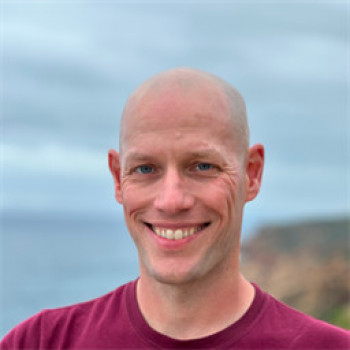 SEMS seminars: Google DeepMind Chair of Machine Learning and AI, Professor Marc Deisenroth, UCL SEMS seminars: Google DeepMind Chair of Machine Learning and AI, Professor Marc Deisenroth, UCLCentre for Bioengineering Title: Opportunities for Machine Learning to Accelerate Progress in Environmental Modelling Abstract: Modelling complex environmental systems, such as weather or oceans, is extremely challenging. Recent advances in machine learning and AI to automatically learn complex relationships from data have opened up opportunities for data-driven methodologies to make a meaningful contribution to environmental science and even play the role of a transformative technology within environmental... |
| Tue 6 May 2025 16:30 - 19:00 | 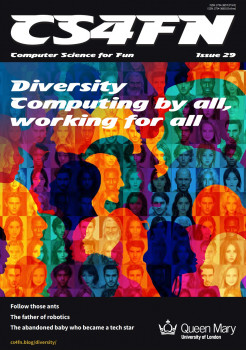 Computer Science For Fun (cs4fn) 20th anniversary Celebration Computer Science For Fun (cs4fn) 20th anniversary CelebrationCentre for Human-Centred Computing The Computer Science for Fun Project is 20 years old! Created by Paul Curzon and the late Peter McOwan, we have been inspiring (and teaching) students, teachers and the general public about interdisciplinary computer science research since 2005, when we released and mailed out our first free magazine issue to schools and gave it away to the general public as part of our exhibit at the Royal Society Summer Exhibition that year. Join us for a celebration event at Queen Mary University of London... |
| Fri 2 May 2025 10:30 - 11:30 | 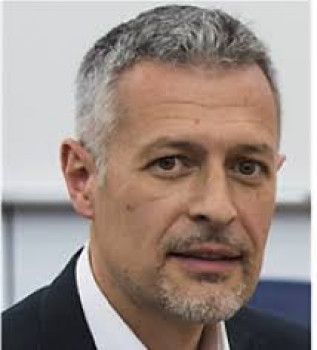 Seminar: Cyber-Prosthetics as Body-centric Electromagnetic Devices: From Structural to Metal-free Bio-integrated Antennas Seminar: Cyber-Prosthetics as Body-centric Electromagnetic Devices: From Structural to Metal-free Bio-integrated AntennasCentre for Electronics Online Teams Link Summary The concept of Cyber-Prosthesis redefines implantable devices not only as mechanical surrogates but also as bodycentric wireless nodes capable of sensing, storing, and transmitting biophysical information. Within this paradigm, the structural components of prosthetic implants—such as orthopedic fixtures, dental screws, stents, and heart valves—are converted into antenna systems operating in the UHF RFID band. These systems communicate through body tissues by... |
April 2025 | |
| Wed 30 Apr 2025 10:30 - 11:30 | 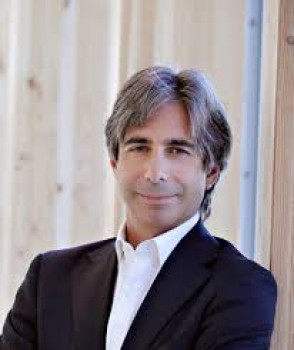 Seminar: Interfacing Electromagnetics With Life Sciences and Medicine: Bioelectromagnetics and brain-machine interfaces for the treatment of cognitive conditions, glaucoma, and disorders of the retina Seminar: Interfacing Electromagnetics With Life Sciences and Medicine: Bioelectromagnetics and brain-machine interfaces for the treatment of cognitive conditions, glaucoma, and disorders of the retinaCentre for Electronics Online Teams Link Summary Although technical challenges are still daunting, the clinical utility of neuroprosthetics has increased dramatically over the past few years. This has been accomplished through the convergence of numerous disciplines, which have individually added fundamental understanding/capabilities to systems that interface with the human body to restore senses and movement, or treat prevalent diseases that have currently no foreseeable cure. In this talk, we will cover... |
| Tue 29 Apr 2025 10:00 - 11:00 | Seminar: QMUL Robotics Seminar Series: Material-Enabled Technologies for Soft and Fluidic Robots by Dr. Daniel J. Preston, Rice University
Centre for Intelligent Transport Location: David Sizer LT, Bancroft building, Queen Mary University of London, Mile End, London E1 4NS Title: Material-Enabled Technologies for Soft and Fluidic Robots Abstract: The emerging field of soft robotics, which incorporates... |
| Tue 22 - Fri 25 Apr 2025 | 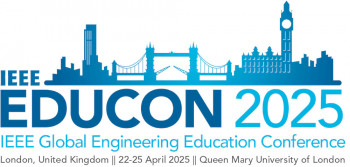 Conference: IEEE Global Engineering Education Conference 2025 Conference: IEEE Global Engineering Education Conference 2025Centre for Human-Centred Computing Hosted by Queen Mary this year, the 16th edition will focus on Sustaining Educational Excellence in Engineering: Generative AI in Enhancing Critical Thinking and Active Learning. With a diverse Organising Committee of 38 members from 13 countries and 19 institutions, the conference promises a wealth of global perspectives and expertise, fostering innovation in engineering education worldwide. Visit the IEEE EDUCON 2025 website for more details and to get involved. Dr Usman Naeem, Reader in... |
| Tue 15 Apr 2025 14:00 - 15:00 |  Seminar: GAnG seminar - Molly Kaplan Seminar: GAnG seminar - Molly KaplanCentre for Geometry, Analysis and Gravitation Title - De Sitter quantum gravity and the emergence of local algebras Abstract - Quantum theories of gravity are generally expected to have some degree of nonlocality, with familiar local physics emerging only in a particular limit. Perturbative quantum gravity around backgrounds with isometries and compact Cauchy slices provides an interesting laboratory in which this emergence can be explored. In this context, the remaining isometries are gauge symmetries and, as a result, gauge-invariant... |
| Fri 11 Apr 2025 15:00 - 17:00 | Seminar: Theory Talks:- The Random Neural Network and G-Networks: Mathematical Tools for Machine Learning and System Performance Evaluation Centre for Fundamentals of AI and Computational Theory "The Random Neural Network and G-Networks: Mathematical Tools for Machine Learning and System Performance Evaluation" Erol Gelenbe FACM & FIEEE Institute of Theoretical & Applied Informatics, Polish Academy of Sciences Abstract: Since the... |
| Thu 10 Apr 2025 10:00 - 12:00 | Seminar: Nano Dimension – Changing the way world manufactures Centre for Electronics Summary Chris Garden from NanoDimension will give a talk about their 3D printer and explain how it can be used for printed circuit board fabrication. The talk will be followed by Q&A and a demonstration of the printer. The content of the talk is... |
| Thu 10 Apr 2025 13:00 - 14:00 | Seminar: Gadi Fibich (Tel Aviv U): Spreading Processes on Networks Centre for Complex Systems Spreading of innovations and epidemics is a classical problem. Traditionally, they have been analyzed using compartmental models (Bass, SI, …), which implicitly assume that all the individuals are homogeneous and connected to each other. To relax... |
| Wed 9 Apr 2025 12:30 - 13:30 | Seminar: C4DM & AIL Seminar: Alexander Hawkins: Some Questions from the Field: A Performer in Conversation with New Instruments Centre for Multimodal AI C4DM & AIL Seminar: Alexander Hawkins: Some Questions from the Field: A Performer in Conversation with New Instruments QMUL, School of Electronic Engineering and Computer Science Imperial College London, Dyson School of Design Engineering Centre... |
| Thu 3 Apr 2025 13:00 - 14:00 | Seminar: Yotam Smilansky (U Manchester): Dynamics and resonances of hyperbolic tilings Centre for Complex Systems Substitution rules provide a classical method for constructing aperiodic tilings of Euclidean space. In my talk I will describe how they may additionally generate tilings of the hyperbolic upper-half space, extending constructions previously... |
| Wed 2 Apr 2025 15:00 - 16:00 | 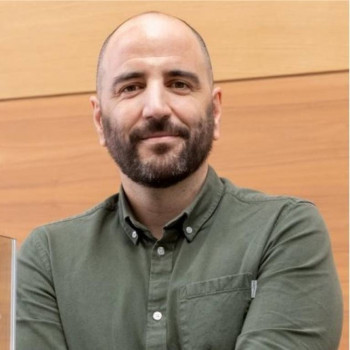 Queen Mary Bioengineering Seminar Series - Dr Alberto Elosegui-Artola, The Francis Crick Institute Queen Mary Bioengineering Seminar Series - Dr Alberto Elosegui-Artola, The Francis Crick InstituteCentre for Bioengineering Title The ECM viscoelasticity controls tissue spatiotemporal dynamics Abstract The mechanical properties of the extracellular matrix (ECM) regulate cellular processes during development, cancer and wound healing. Despite the universality of the ECM's viscoelasticity, how viscoelasticity affects tissue function is unknown. I will present our results where we show that the passive viscoelastic properties of the ECM regulate tissue architecture and patterning both during development and... |
| Tue 1 Apr 2025 12:00 - 13:00 | 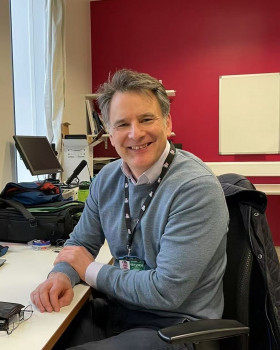 SEMS seminars: Defence Professor of Military Surgery and Trauma, Hon Professor of Surgery, Consultant Surgeon, Colonel Nigel Tai, QMUL & Royal London Hospital SEMS seminars: Defence Professor of Military Surgery and Trauma, Hon Professor of Surgery, Consultant Surgeon, Colonel Nigel Tai, QMUL & Royal London HospitalCentre for Bioengineering Title: Non-Compressible Haemorrhage - a problem for Engineers? Abstract: Exsanguination - literally bleeding to death - is the biggest cause of preventable trauma death, both in military and civilian settings. New solutions to this problem are required, and engineers will be a vital part of the progress towards such solutions. This talk will convey the problem to an engineering audience and help generate background understanding. About the speaker: Colonel Nigel Tai is the UK... |
| Tue 1 Apr 2025 14:00 - 15:00 |  Seminar: GAnG seminar - Betti Hartmann, Black holes and boson stars with wavy scalar hair Seminar: GAnG seminar - Betti Hartmann, Black holes and boson stars with wavy scalar hairCentre for Geometry, Analysis and Gravitation Black holes and boson stars with wavy scalar hair Static, spherically symmetric black holes can carry scalar hair when coupling standard Einstein gravity minimally to a self-interacting complex scalar field and a U(1) gauge field. For this scalar hair to exist, the frequency of the scalar field needs to be fine-tuned. In this talk, I will discuss these solutions and point out that for sufficiently large gravitational coupling, the space-time splits into two distinct parts: (a) an inflating... |
March 2025 | |
| Fri 28 Mar 2025 15:00 - 17:00 | Seminar: Theory talks Centre for Fundamentals of AI and Computational Theory There has been a change to the posted event Speaker: Rob Arthan Rob Arthan will give a talk on mechanized theorem proving, particularly as regards its application in mathematics, Rob's talk should last one hour, so we will have time... |
| Thu 27 Mar 2025 13:00 - 14:00 | Seminar: Jörg Neunhäuserer (TU Braunschweig): A new family of expansions of real numbers Centre for Complex Systems |
| Wed 26 Mar 2025 14:00 - 15:00 | 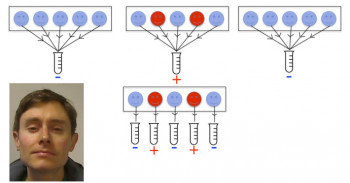 SMS Colloquium: Pooled testing, and its applications in pandemics such as the Covid-19 pandemic (David Ellis, University of Bristol) SMS Colloquium: Pooled testing, and its applications in pandemics such as the Covid-19 pandemic (David Ellis, University of Bristol)Centre for Combinatorics, Algebra and Number Theory We are pleased to welcome David Ellis, former member of the Combinatorics Group at QMUL, to give a talk based on his work as a member of the Action Team of DELVE (Data Evaluation & Learning for Viral Epidemics) during the Covid-19 pandemic. All welcome. The talk will be followed by light refreshments in the Maths Common Room. Abstract When testing for a disease such as Covid-19 (for example, for the purposes of infection control), the standard method is individual testing: we take a... |
| Tue 25 Mar 2025 14:00 - 15:00 |  Seminar: GAnG seminar - David Nielsen, Gravitational wave science in the next decade: a new frontier for numerical relativity Seminar: GAnG seminar - David Nielsen, Gravitational wave science in the next decade: a new frontier for numerical relativityCentre for Geometry, Analysis and Gravitation Gravitational wave science in the next decade: a new frontier for numerical relativity. The newly upgraded LIGO and Virgo observatories are regularly detecting gravitational waves from merging black holes and neutron stars, with public alerts for candidate events coming at a rate of about one per day. These observations provide new information about the population of black holes in the near universe, giving clues about their formation and history, and they allow us to test general relativity... |
| Thu 20 Mar 2025 13:00 - 14:00 | Seminar: Dibyajyoti Mohanta (New York State U): From Sequence-Specific Fluorescence Fingerprints to Aging in RNA Condensates: Dynamics of Heteropolymer Systems Centre for Complex Systems Heteropolymer systems provide a versatile framework for understanding biomolecular phenomena across scales. In this talk, we bridge two distinct domains: (1) optical DNA mapping (ODM), a technique for generating sequence-specific fluorescence ... |
| Wed 19 Mar 2025 14:30 - 16:30 | 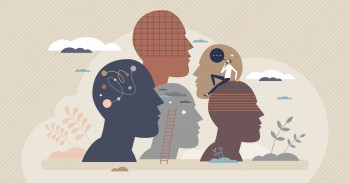 Neurodiversity Celebration Week 2025 Neurodiversity Celebration Week 2025Faculty of Science and Engineering Join us on Wednesday 19 of March in MB-503 (Maths building) for an afternoon of research talks around neurodiversity and a panel discussion with members of the five Schools. 14:30: Dan Allan Gill and Katja Ivanova (EECS) Neurodiverse Voices in Research: Our Work and the MINDS Network Including the voices of neurodivergent people within research about them can help to build a richer, more impactful research output. In this talk, we will share how the lived experiences of both... |
| Tue 18 Mar 2025 14:00 - 15:00 |  Seminar: GAnG seminar - Calvin Chen (rescheduled) Deformations of Extremal Black Holes Seminar: GAnG seminar - Calvin Chen (rescheduled) Deformations of Extremal Black HolesCentre for Geometry, Analysis and Gravitation Title: Deformations of Extremal Black Holes Abstract: In this talk, I will re-examine a class of extremal charged black holes in AdS and study their EFT corrections. I will start by introducing static perturbations to the near-horizon geometry of extremal black holes. It turns out these generically suffer from singularities of various degrees. Particular deformations are marginal – they are not singular in GR, but even arbitrarily small EFT corrections seem to be able to make them... |
| Thu 13 Mar 2025 13:00 - 14:00 | Peter Orbanz (UCL): Limit theorems for distributions invariant under a group of transformations Centre for Complex Systems Consider a large random structure -- a stochastic process on the line, a random graph, a random field on the grid -- and a function that depends only on a small part of the structure. Now use a family of transformations to 'move' the domain of the... |
| Thu 13 Mar 2025 14:00 - 15:00 | Seminar: CIS Seminar: Human-Centered Assistive Robots: From Understanding Speech Commands to Detecting Cognitive Fatigue Centre for Multimodal AI You are cordially invited to the Centre for Intelligent Sensing seminar from the an external speaker invited by Dr Manolis Chiou: Speaker: Dr Maria Kyrarini, Santa Clara University Title: Human-Centered Assistive Robots: From Understanding... |
| Wed 12 Mar 2025 11:00 - 12:00 | CSR seminar - New Waveform Design for Integrated Sensing and Communications Centre for Networks, Communications and Systems New Waveform Design for Integrated Sensing and Communications Speaker: Professor Pei Xiao Date/time: 12-March-2025 (11 AM) Location: GC114 (Graduate Centre) Bio: Pei Xiao is a professor of Wireless Communications at the Institute for... |
| Tue 11 Mar 2025 13:30 - 14:30 | C4DM Seminar: Connecting two continents: Immersive Audio Research in Korea Advanced Institute of Science and Technology (KAIST) and Rochester Institute of Technology (RIT) Centre for Multimodal AI Centre for Digital Music Seminar Series Seminar by: Dr. Sungyoung Kim Date/time: Tuesday, 13:30-14:30 on 11th March Location: G2, Engineering Building, Mile End Campus, QMUL, E1 4NS Title Connecting two continents:... |
| Tue 11 Mar 2025 14:00 - 15:00 |  Seminar: GAnG seminar - Christopher Couzens
Localising Romans Supergravity Seminar: GAnG seminar - Christopher Couzens
Localising Romans SupergravityCentre for Geometry, Analysis and Gravitation Localising Romans Supergravity In this talk, I will discuss how Equivariant Localization can be used to compute observables in supergravity without the need to solve the equations of motion. We will use 6d Romans supergravity as our test case and show that the on-shell action is almost completely determined in terms of topological data. This allows us to recover known results in the literature and to make predictions for hitherto unknown solutions. |
| Thu 6 Mar 2025 10:00 - 16:30 | 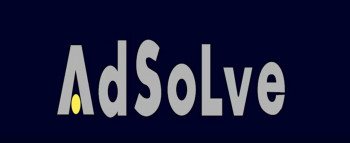 Turing AI Fellowship Showcase & AdSoLve Co-Creation Workshop Turing AI Fellowship Showcase & AdSoLve Co-Creation WorkshopCentre for Human-Centred Computing We are delighted to invite you to a stakeholder workshop on Thursday 6th March, at The Alan Turing Institute to showcase our findings in the context of Prof Liakata's Turing AI fellowship. This will be a joint event with presentations from Prof. Liakata's Turing AI fellowship team on "Creating time-sensitive sensors from heterogeneous user-generated content" - the fellowship is ending in March)and a workshop themed around mental health, a major use case for the RAi UK Keystone project ... |
| Thu 6 Mar 2025 13:00 - 14:00 | Seminar: Vittorio Loreto (La Sapienza): Exploring the Adjacent Possible: a mathematical lens on Innovation and Evolution Centre for Complex Systems New experiences continuously reshape our lives, whether through encounters with novel ideas, social interactions, or technological advancements. While some of these experiences occur randomly, many unfold through intricate chains of correlation and... |
| Wed 5 Mar 2025 | One-day ergodic theory meeting Centre for Complex Systems |
| Wed 5 Mar 2025 11:00 - 12:30 | 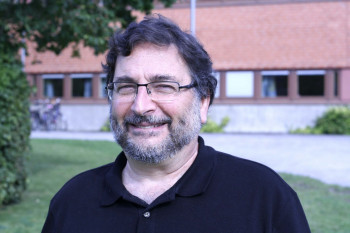 Representation learning to act and plan.
Prof. Hector Geffner, Aachen University. Representation learning to act and plan.
Prof. Hector Geffner, Aachen University. Centre for Human-Centred Computing Abstract: Recent developments in AI have shown the remarkable power of deep learning, deep reinforcement learning, and LLMs. The resulting systems, however, require large amounts of data, are not transparent or reliable, and struggle with structural forms of reuse and generalization. In this talk, I'll argue that these limitations can be addressed by learning suitable symbolic representations from raw data, and illustrate the approach by considering two concrete problems in the setting of... |
| Wed 5 Mar 2025 14:00 - 15:00 | Seminar: RSC Prize Lecture: Prof Sebastien Perrier, University of Warwick Centre for Chemical Research Therapeutic Materials via Molecular Engineering Professor Sébastien Perrier Department of Chemistry and Medical School University of Warwick s.perrier@warwick.ac.uk Nanomedicine, the application of nanotechnology to healthcare,... |
| Wed 5 Mar 2025 15:00 - 16:30 | 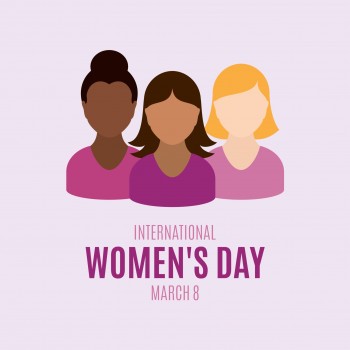 International Women's Day 2025 International Women's Day 2025Faculty of Science and Engineering 15:00 Jessica Agnew-Blais (SBBS) Understanding ADHD in women 15:30 Marcella Bona (SPCS) Wasted talent: the status quo of women in Physics in the US and UK 15:50 Women and Queer People in Physics Society 16:00 Panel discussion with representation of the five Schools on experiences and challenges of women in S&E 16:30 Coffee and cake |
| Tue 4 Mar 2025 12:00 - 13:00 | 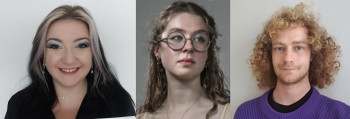 SEMS PDRA-PhD seminars: Poppy Smith, Mia Frances Crowther and Rory Douglas Bennett SEMS PDRA-PhD seminars: Poppy Smith, Mia Frances Crowther and Rory Douglas BennettCentre for Bioengineering Title: Automated Production of Engineered Nerve Tissue Talk Summary of Poppy Smith: Traumatic peripheral nerve injury has a sudden, debilitating effect on millions of people every year, resulting in loss of sensation and movement, significantly reducing quality of life. The standard clinical treatment to repair peripheral nerve injuries which result in a gap in the nerve tissue, is the nerve autograft. The autograft has multiple limitations including donor site morbidity and availability,... |
February 2025 | |
| Fri 28 Feb 2025 15:00 - 17:00 | Seminar: Theory Talks Centre for Fundamentals of AI and Computational Theory Speaker: Glynn Winskel Probablilistic Event Structures Speaker: Edmund Robinson Some basic issues in logic The seminar will be followed by a social event at which all are welcome. |
| Wed 26 Feb 2025 15:00 - 16:00 | Seminar: Enrico Amico (U Birmingham): Higher-order connectomics of human brain function Centre for Complex Systems Traditional models of human brain activity often represent it as a network of pairwise interactions between brain regions. Going beyond this limitation, recent approaches have been proposed to infer higher-order interactions from temporal... |
| Tue 25 Feb 2025 14:00 - 15:00 |  Seminar: GAnG seminar - Martin Taylor, Radiative properties of collisionless matter in isolated charged systems Seminar: GAnG seminar - Martin Taylor, Radiative properties of collisionless matter in isolated charged systemsCentre for Geometry, Analysis and Gravitation Radiative properties of collisionless matter in isolated charged systems The Vlasov--Poisson system describes the evolution of an ensemble of either: 1. Electrically charged particles, interacting via an electrostatic Coulomb force; 2. Self-gravitating particles, interacting via a Newtonian gravitational force. In 3 space dimensions, for isolated systems, dispersive solutions asymptotically exhibit logarithmically corrected linear behaviour, i.e. such solutions ``scatter'' in a... |
| Thu 20 Feb 2025 13:00 - 14:00 | Seminar: Carl Dettmann (U Bristol) Centre for Complex Systems |
| Thu 20 Feb 2025 17:00 - 20:00 | 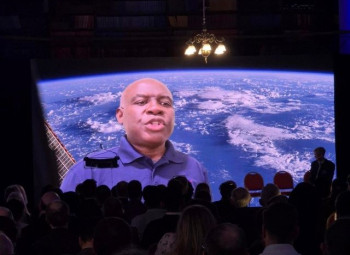 A Night of Science and Engineering: exploring Tomorrow’s World at Queen Mary A Night of Science and Engineering: exploring Tomorrow’s World at Queen MaryFaculty of Science and Engineering Queen Mary University of London's third annual Night of Science and Engineering brought together leading industry partners, researchers, academics, policymakers, and the public for an evening of discovery, innovation, and collaboration. Held in the historic Octagon venue on 20 Feb, this year's event, themed 'Tomorrow's World', showcased groundbreaking research that is shaping the future. Guests explored interactive exhibits featuring cutting-edge advancements, from space-based solar power... |
| Wed 19 Feb 2025 14:00 - 15:00 | Seminar: Chemistry Seminar: Prof Renske van der Veen Centre for Chemical Research Fast Electrons and Hard X-rays for Unraveling Atomic-Scale Dynamics in Light-Energy Conversion Prof. Dr. Renske M. van der Veen Helmholtz Centre Berlin for Materials and Energy Germany Technical University of Berlin, Germany The... |
| Wed 19 Feb 2025 15:00 - 16:00 | 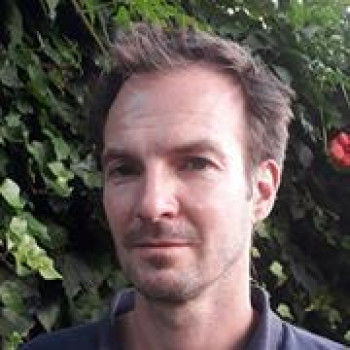 SEMS seminars: Prof Guillaume Charras, UCL SEMS seminars: Prof Guillaume Charras, UCL Centre for Bioengineering Title: Control of morphogenesis by the actin cortex in single cells and multicellular aggregates Abstract: The actin cortex is a thin meshwork of actin filaments, myosin motors and actin-binding proteins that lies below the membrane. Mechanical changes in the cortex play an essential role in morphogenesis of cells and tissues. I will present work examining the role of the cortex in cell division and the shape of multicellular aggregates. As they enter mitosis, cells undergo profound... |
| Tue 18 Feb 2025 14:00 - 15:00 |  Seminar: GAnG seminar - Joshua Daniels Holgate Seminar: GAnG seminar - Joshua Daniels HolgateCentre for Geometry, Analysis and Gravitation Title: Mean curvature flow from conical singularities Abstract: We discuss some regularity results for mean curvature flow from smooth hypersurfaces with conical singularities. We then discuss how to use these results to tackle the conical singularity resolution conjecture of Ilmanen, demonstrating a non-uniqueness dichotomy: a closed flow encountering a conical singularity 'fattens' if and only if the asymptotic cone also fattens. This is joint work with Otis Chodosh and Felix Schulze. |
| Thu 13 Feb 2025 13:00 - 14:00 | Seminar: Lachlan Burton (QMUL) Centre for Complex Systems |
| Tue 11 Feb 2025 14:00 - 15:00 |  Seminar: GAnG seminar - Thomas Spieksma
Black hole environments: a landscape of possibilities Seminar: GAnG seminar - Thomas Spieksma
Black hole environments: a landscape of possibilitiesCentre for Geometry, Analysis and Gravitation Title: Black hole environments: a landscape of possibilities Abstract: Black holes in our Universe are not expected to be in vacuum. Different black hole environments include accretion disks, dark matter spikes or superradiant boson clouds. In binary systems, these environments could be probed by future space-based gravitational wave interferometers. Understanding their impact is crucial--not only for detecting the gravitational wave signal in the first place but also for uncovering new... |
| Mon 10 Feb 2025 15:00 - 17:00 | Seminar: Theory talks Centre for Fundamentals of AI and Computational Theory Speaker: Vasilis Klimis Title: Fuzzing The work is about how we applied lightweight formal methods to improve SPIRV, the industry-standard language for GPU computing. One major focus was on structured control flow: we built a formal model... |
| Thu 6 Feb 2025 15:00 - 16:00 | 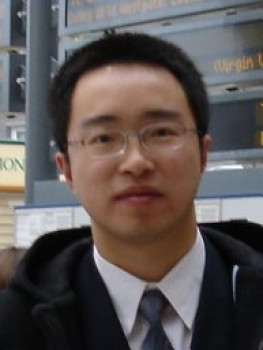 SEMS seminar: Professor Yang Liu, University of Exeter SEMS seminar: Professor Yang Liu, University of ExeterCentre for Bioengineering Title: Harnessing Non-Smooth Dynamics for Self-Propelled Gastrointestinal Endoscopies with Vibro-Impact Capsules Abstract: The rectilinear motion of a capsule can be generated using a periodically driven internal mass interacting with the main body of the capsule as a 'hammer' in the presence of external resistances. At resonance, this 'hammer' enables the capsule to progress efficiently through complex environments without the need for external accessories. This simplicity in... |
| Wed 5 Feb 2025 12:00 - 13:00 | Seminar: Deniz Eroglu (Imperial) - Learning Network Dynamics from Data: Emergent Hypergraphs and Transitions to Synchronization Centre for Complex Systems In complex systems, networks of interconnected components often evolve based on intrinsic rhythms. A key challenge is to understand these systems by inferring appropriate models from observational data. In this work, we explore methods for learning... |
| Wed 5 Feb 2025 15:00 - 17:30 | QMUL-hosted Triangle Centre for Fundamental Physics Schedule for the event 3:00 pm - 4:00 pm: Beatrix Muehlmann (IAS), People's Palace (PP1) 4:00 pm - 4:30 pm: Tea and Coffee, People's Palace (LG1) 4:30 pm - 5:30 pm: Yin-Chen He (Stony Brook), (PP1) 5:30 pm - 6:30 pm: Light... |
| Tue 4 Feb 2025 12:00 - 13:00 | 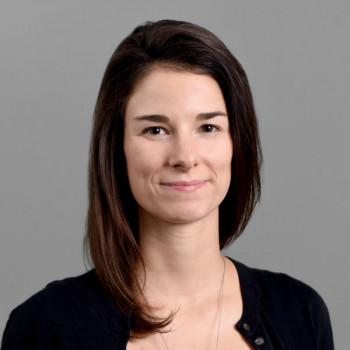 SEMS seminars: Associate Professor Julianne L. Holloway, Arizona State University SEMS seminars: Associate Professor Julianne L. Holloway, Arizona State UniversityCentre for Bioengineering Title: Designing Biomaterials with Spatiotemporal Control for Tissue Engineering Applications Abstract: Advances in materials science, biomolecule delivery, and cell biology has enabled significant innovations within the field of tissue engineering and regenerative medicine over the past few decades. Nonetheless, minimal translation of tissue engineering-based therapeutics to the clinic has occurred. An ongoing challenge within tissue engineering is the difficulty in regenerating... |
| Tue 4 Feb 2025 13:00 - 16:00 | Centre Away-Day. Centre for Human-Centred Computing Meeting of everyone involved in the centre to discuss strategy and culture. |
| Tue 4 Feb 2025 14:00 - 15:00 | 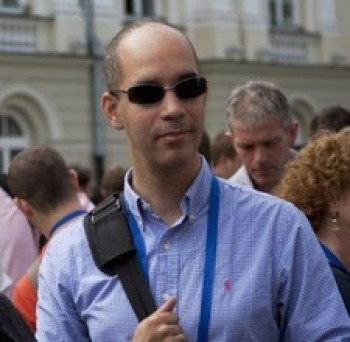 Seminar: GAnG seminar - Juan Valiente Kroon Inaugural Professorial Lecture
Asymptotics in General Relativity: the role of spatial infinity Seminar: GAnG seminar - Juan Valiente Kroon Inaugural Professorial Lecture
Asymptotics in General Relativity: the role of spatial infinityCentre for Geometry, Analysis and Gravitation Asymptotics in General Relativity: the role of spatial infinity In this overview talk I will discuss the relation between the asymptotic behaviour of the gravitational at null infinity and spatial infinity ¾the so-called problem of spatial infinity. I will argue that the conditions assumed by Penrose in his programme to study isolated systems in General Relativity are too restrictive to describe generic spacetimes. I will also discuss how a conformal approach to the study of the structure of... |
January 2025 | |
| Fri 31 Jan 2025 15:00 - 17:00 | Theory talks Centre for Fundamentals of AI and Computational Theory Speaker: Fredrik Dahlqvist Title: On the semantics of conditional branching. Abstract: Motivated by the non-standard interpretation of if-then-else statements in probabilistic programs we examine different semantics for conditional branching.... |
| Wed 29 Jan 2025 10:00 - 11:00 | Seminar: Chemistry Seminar: Dr Rebecca Ingle, University College London Centre for Chemical Research Core-level Spectroscopies as Tools for Chemical Dynamics Abstract: For larger and more complex molecules, one of the biggest challenges for experimental spectroscopy is in the interpretation of heavily convoluted spectra. X-ray spectroscopies... |
| Thu 23 Jan 2025 13:00 - 14:00 | Seminar: Venkata Pamulaparthy (UCL) - Towards neural reinforcement learning for large deviations in nonequilibrium systems with memory Centre for Complex Systems Machine learning methods have recently been developed for computationally intensive investigations of rare events in nonequilibrium systems. However, present methods have generally been designed for Markov processes, presenting a major limitation due... |
| Tue 21 Jan 2025 14:00 - 15:00 |  Seminar: GAnG seminar - Lashi Bandara Seminar: GAnG seminar - Lashi BandaraCentre for Geometry, Analysis and Gravitation Title: Harmonic analysis and boundary value problems in geometry Abstract: Historically, boundary value problems have appeared in engineering problems as partial differential equations on structures with boundary. However, in the past half century, differential operators have played a crucial role to encode, understand and resolve geometric and topological questions. This often requires the deformation of boundary conditions and harnesses index theory as a control mechanism through utilising... |
| Thu 16 Jan 2025 13:00 - 14:00 | C4DM Seminar: Embodied music interaction in eXtended Reality with virtual avatars and agents Centre for Multimodal AI C4DM Seminar: Embodied music interaction in eXtended Reality with virtual avatars and agents QMUL, School of Electronic Engineering and Computer Science Centre for Digital Music Seminar Series Seminar by: Prof. Dr. Pieter-Jan Maes Date... |
| Tue 14 Jan 2025 13:30 - 19:00 | 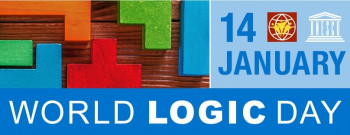 UNESCO World Logic Day UNESCO World Logic Day Centre for Fundamentals of AI and Computational Theory The School of Electronic Engineering and Computer Science at Queen Mary University of London will celebrate the UNESCO World Logic Day with a number of academic institutions from all around the world. We will organise a series of in-person talks explaining how logic and logical methods are exploited in current research. The event will consist of live talks in Peston Lecture Theatre located in QMUL's Graduate Centre. The talks will be aimed at students, researchers, and the wider public.... |

